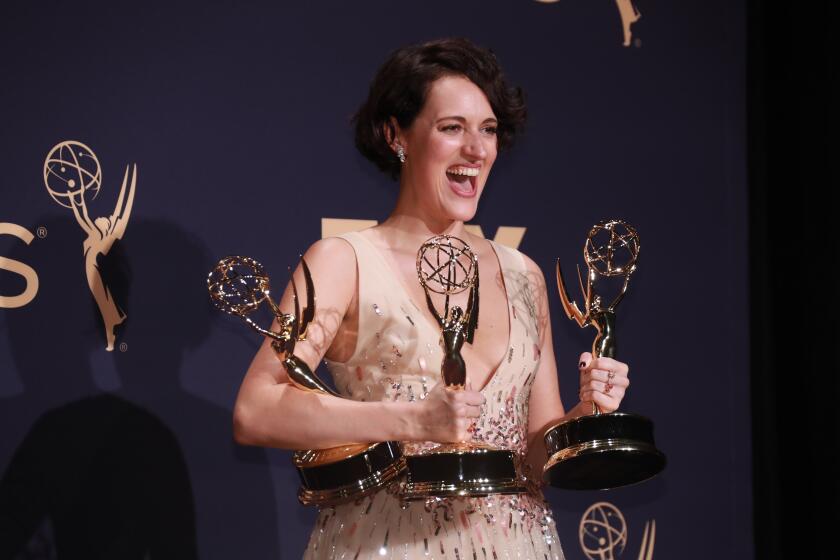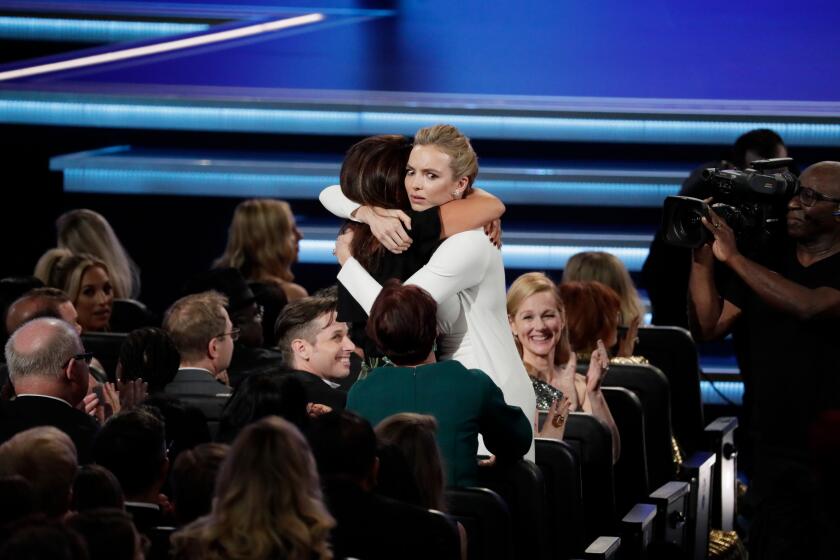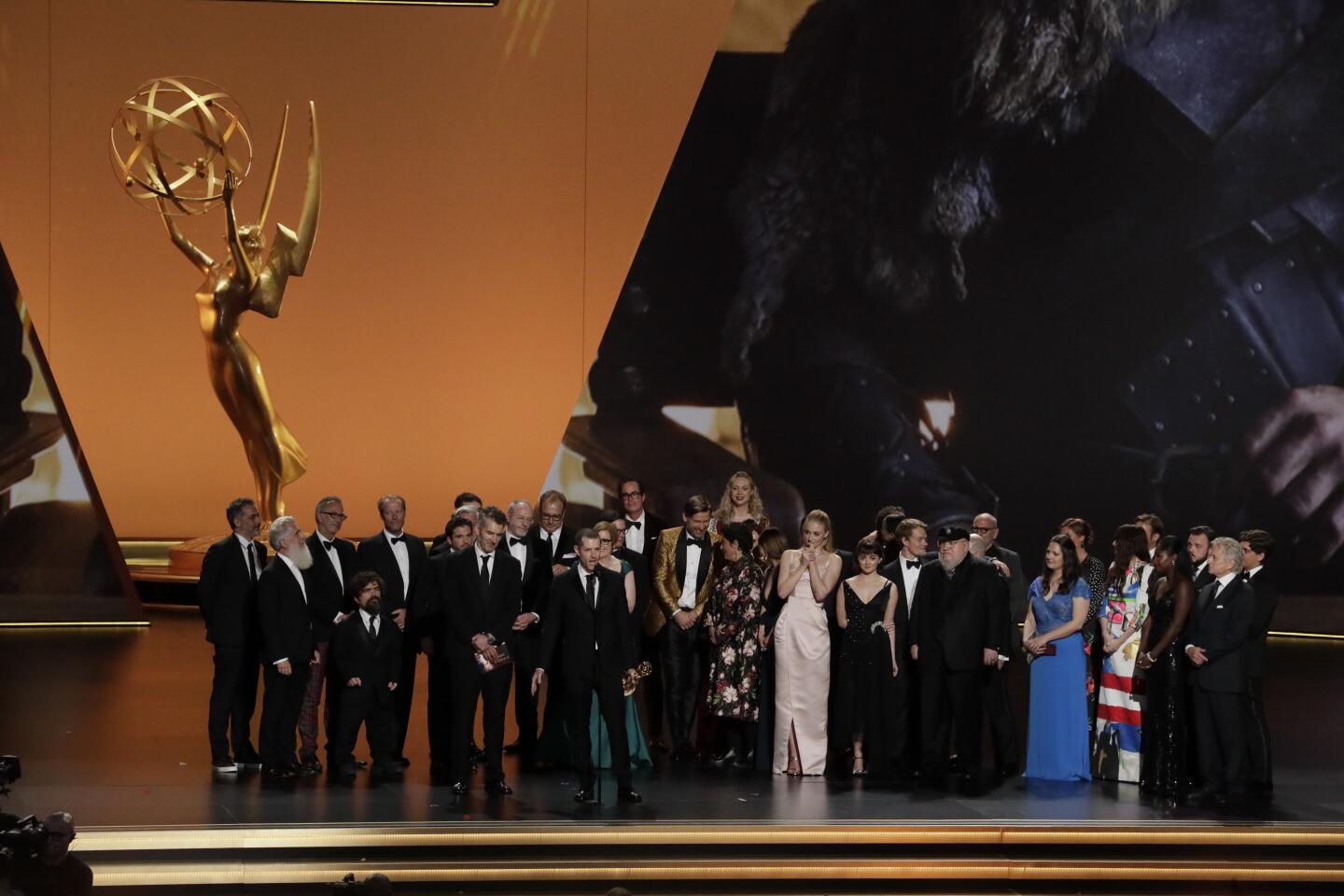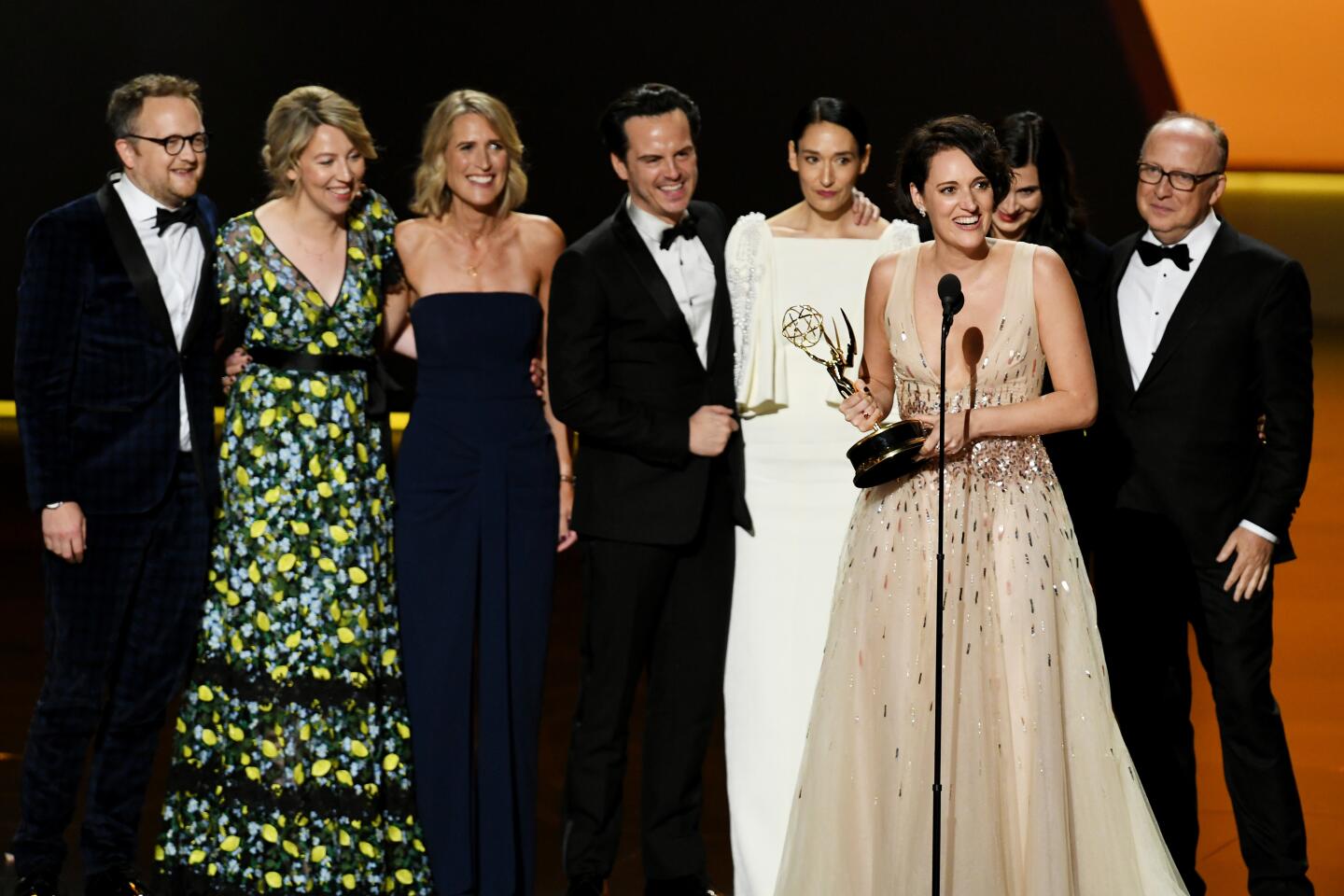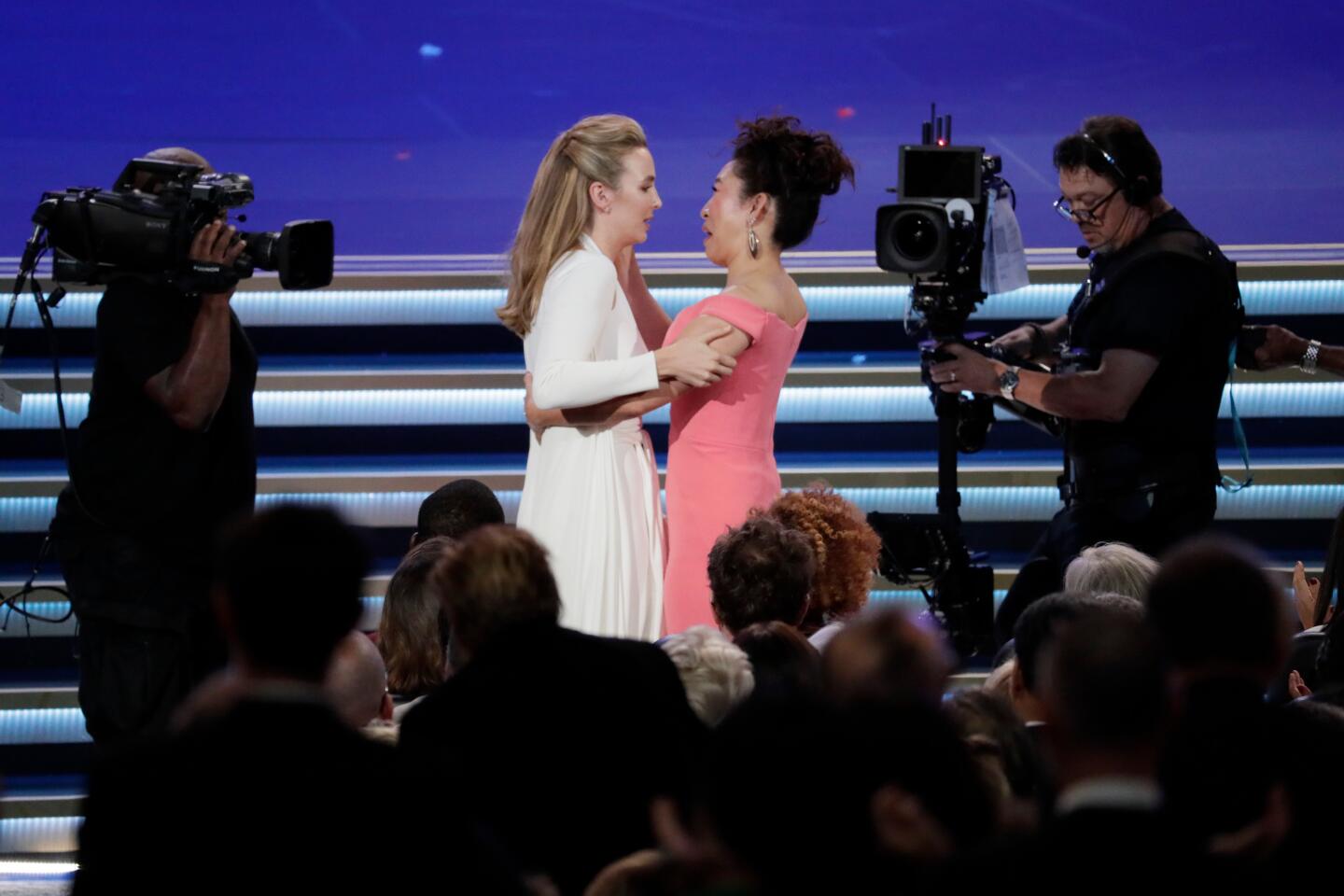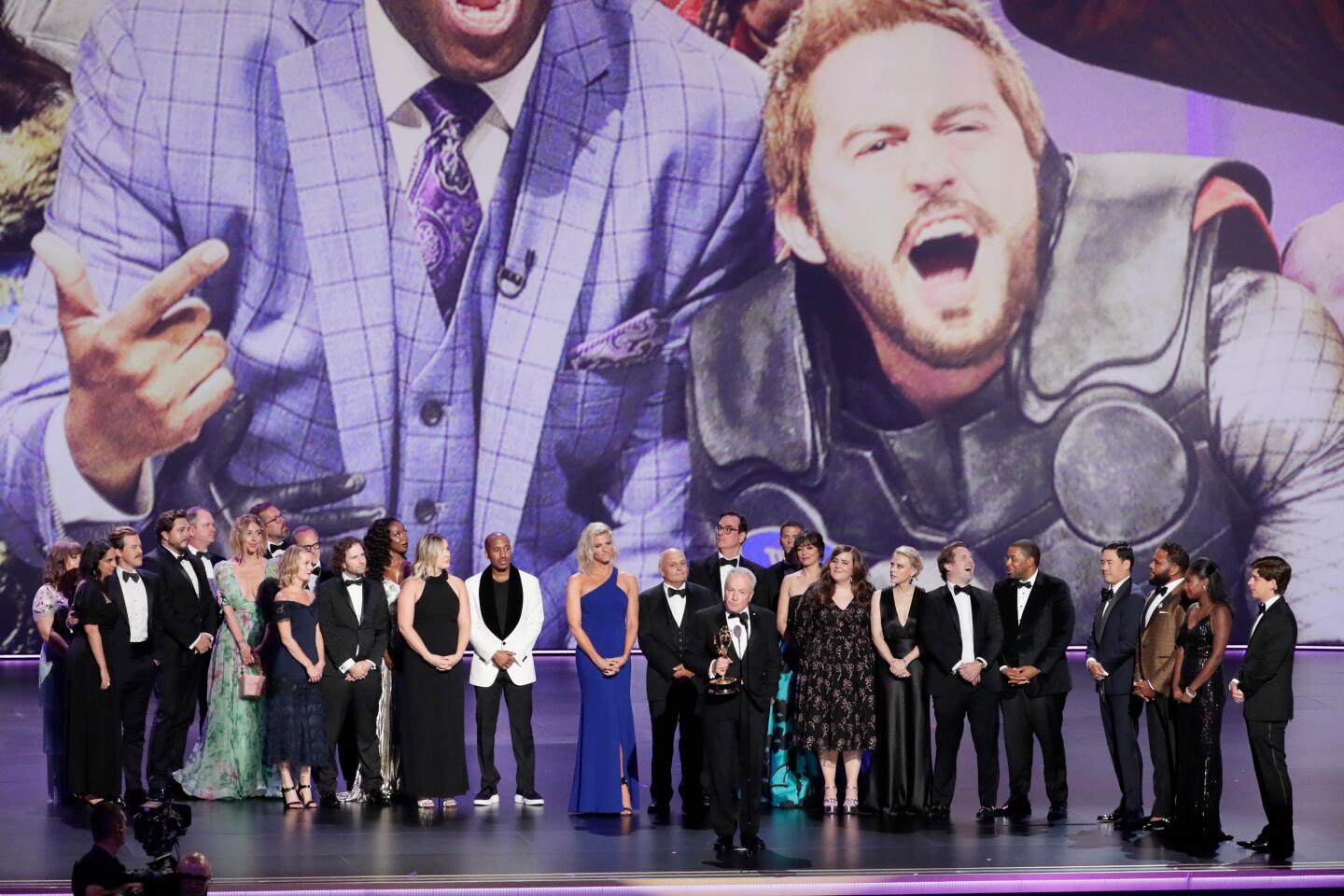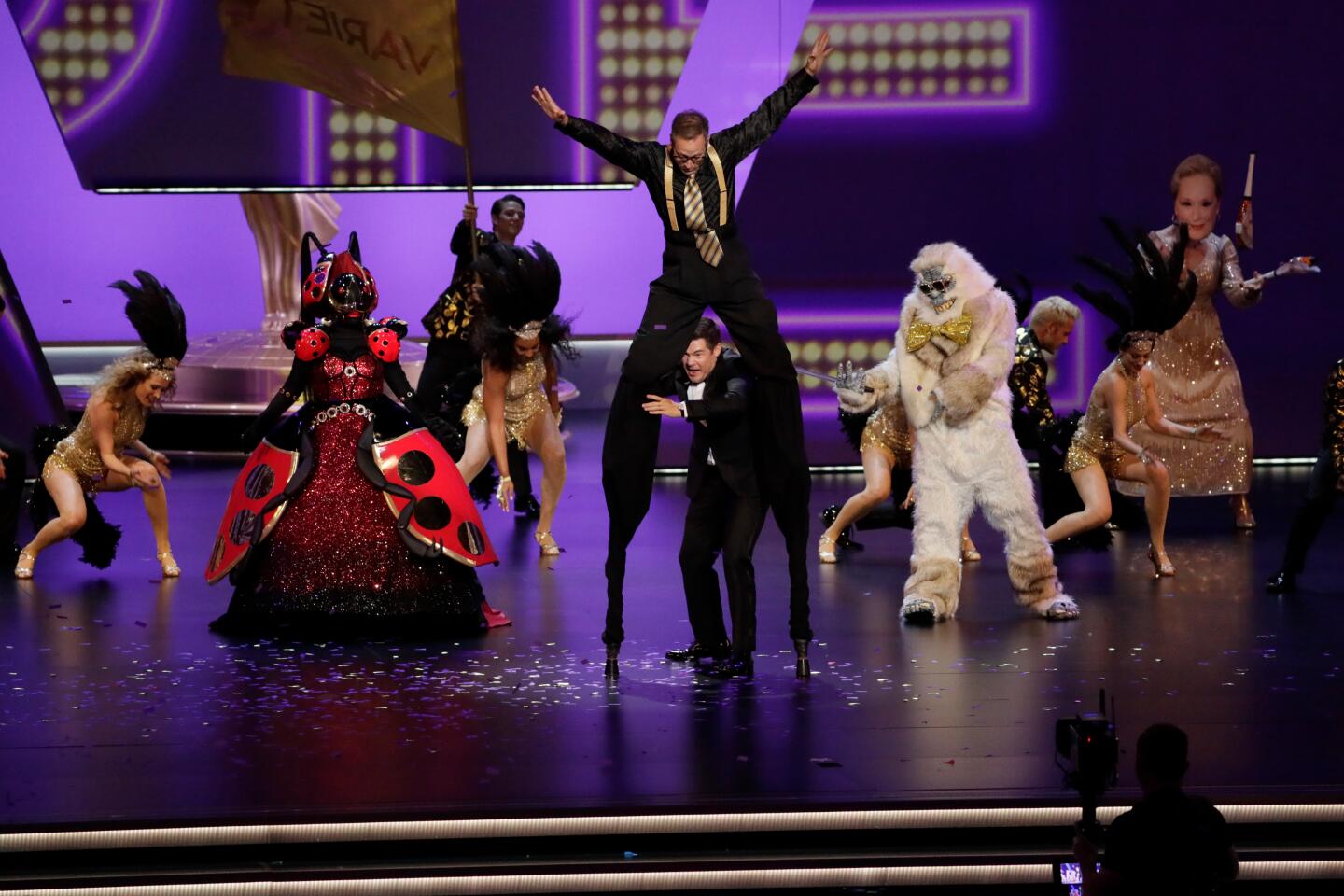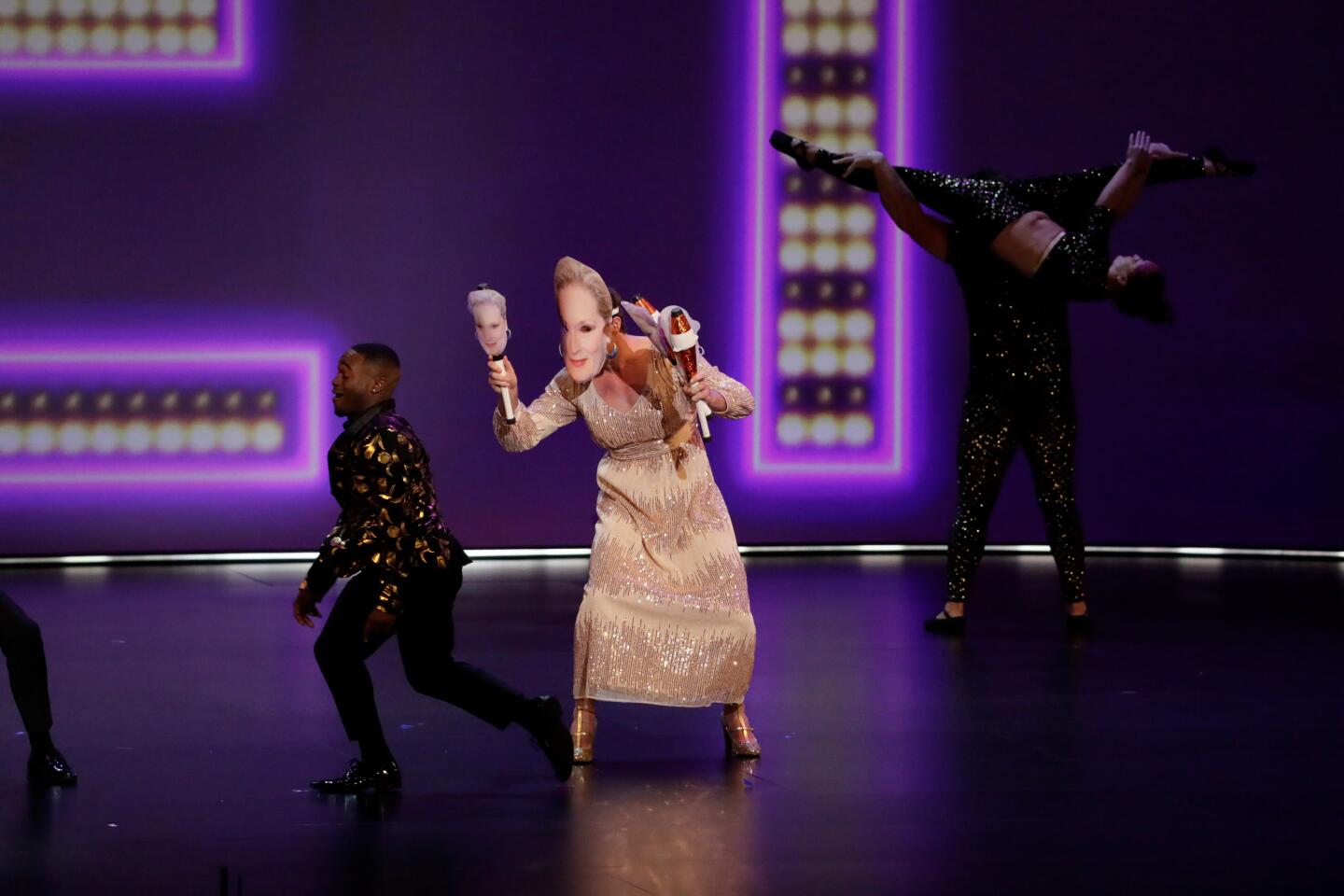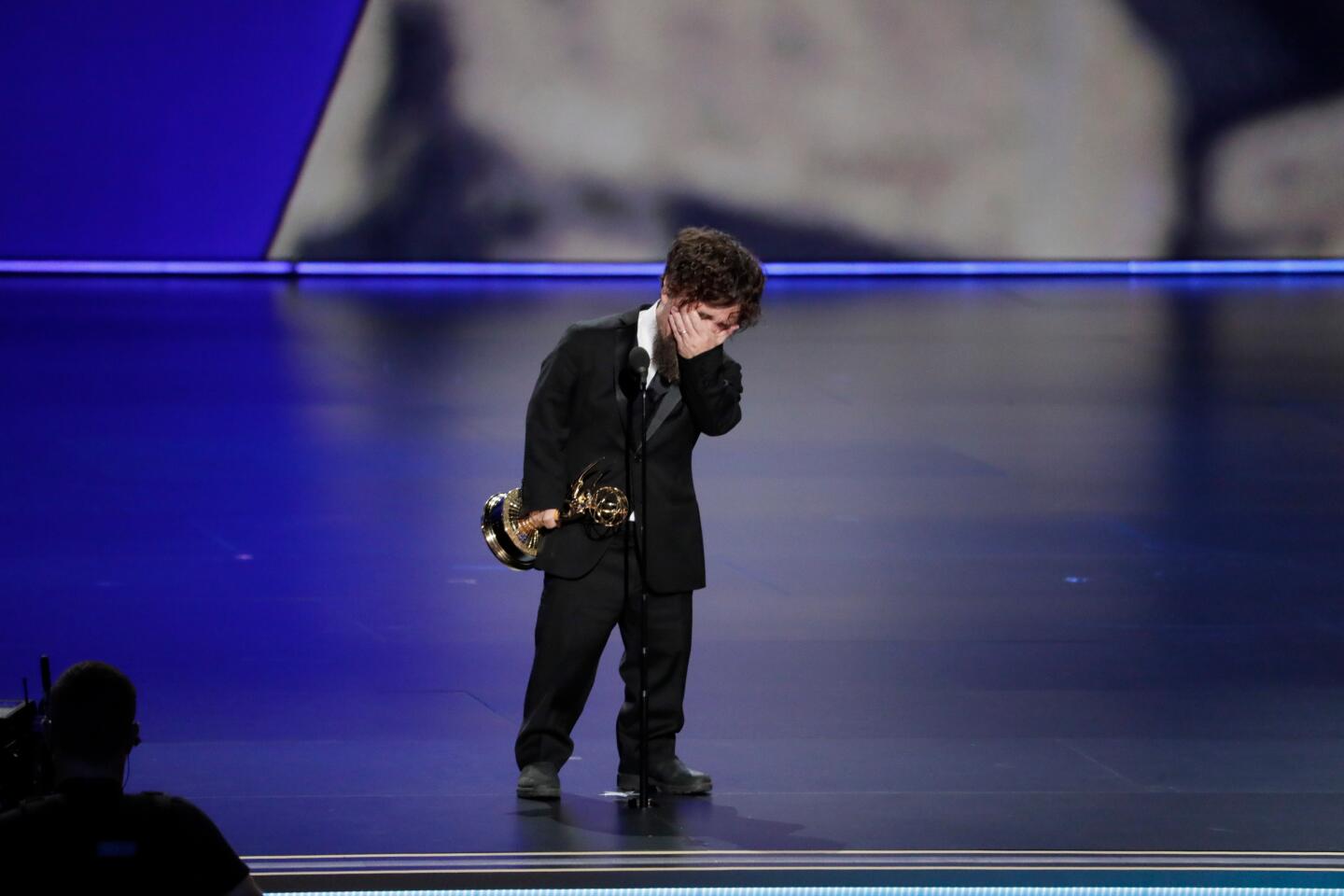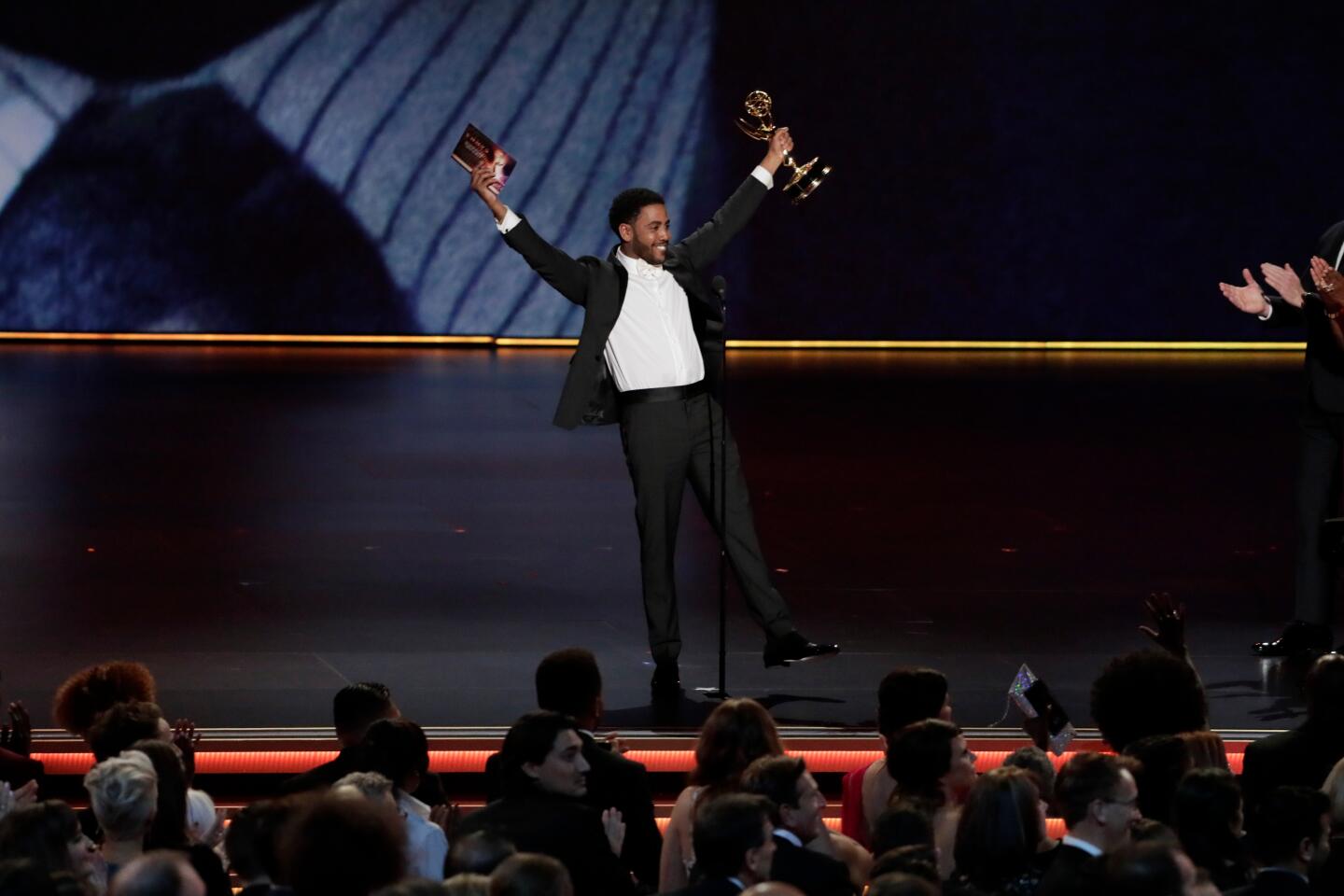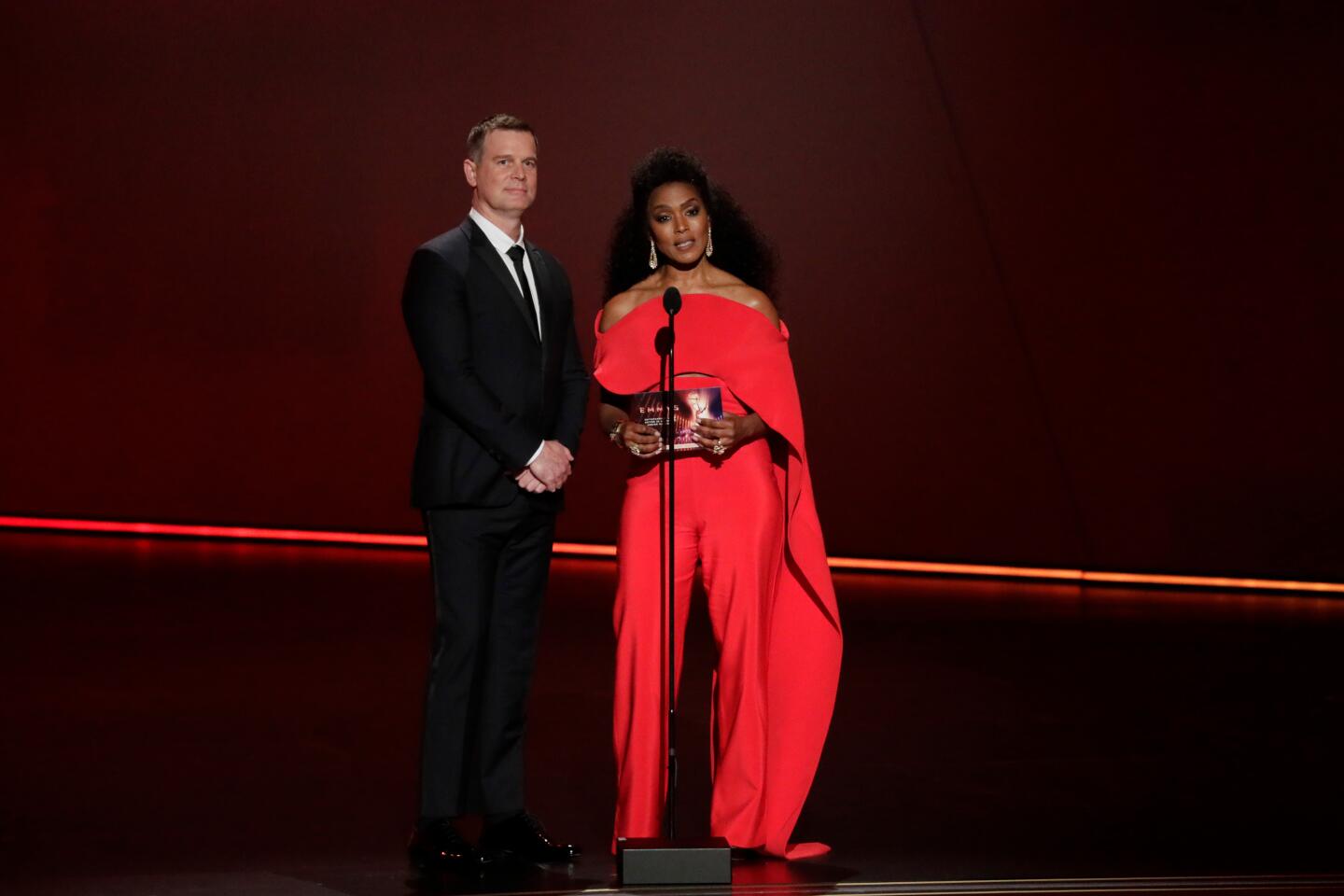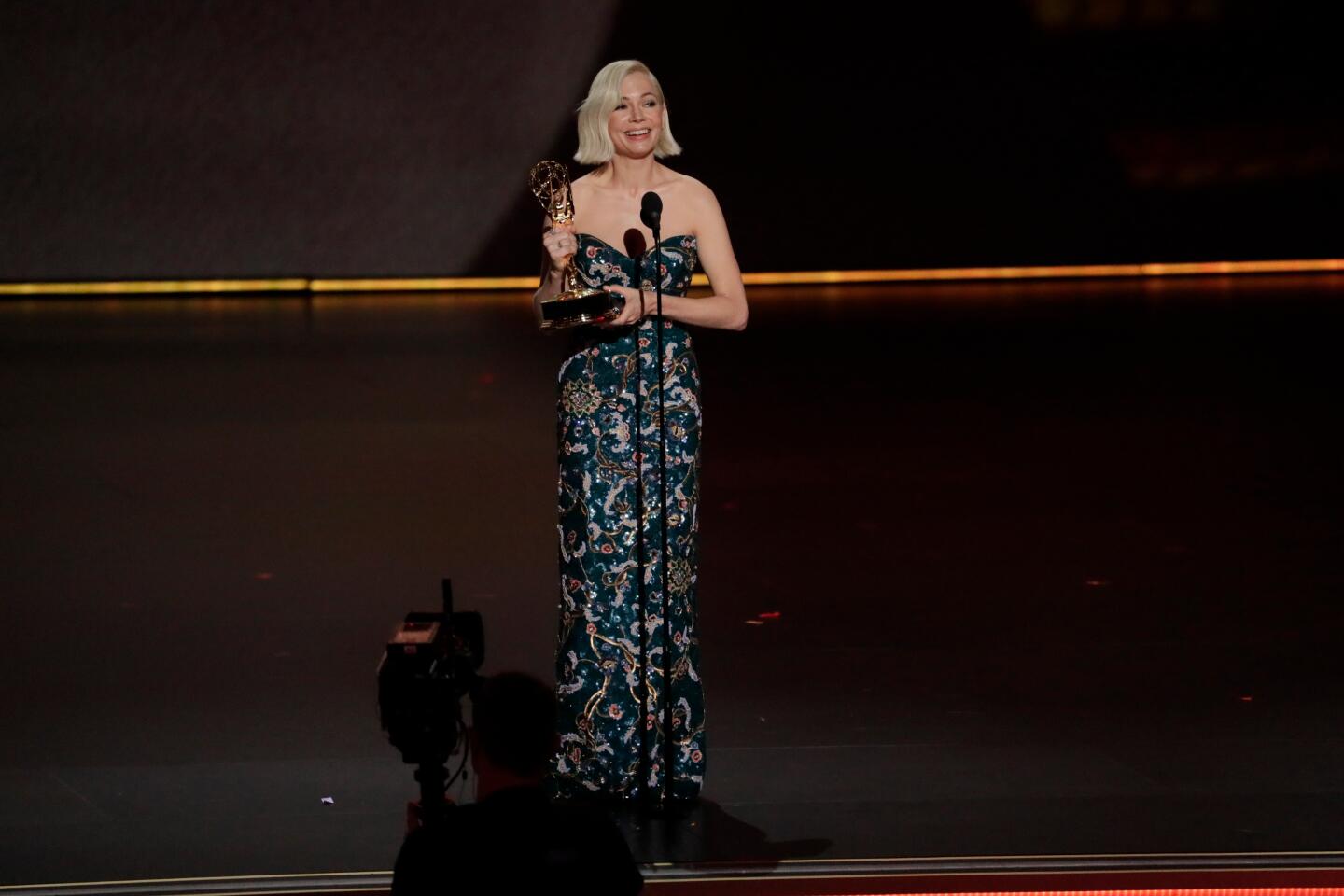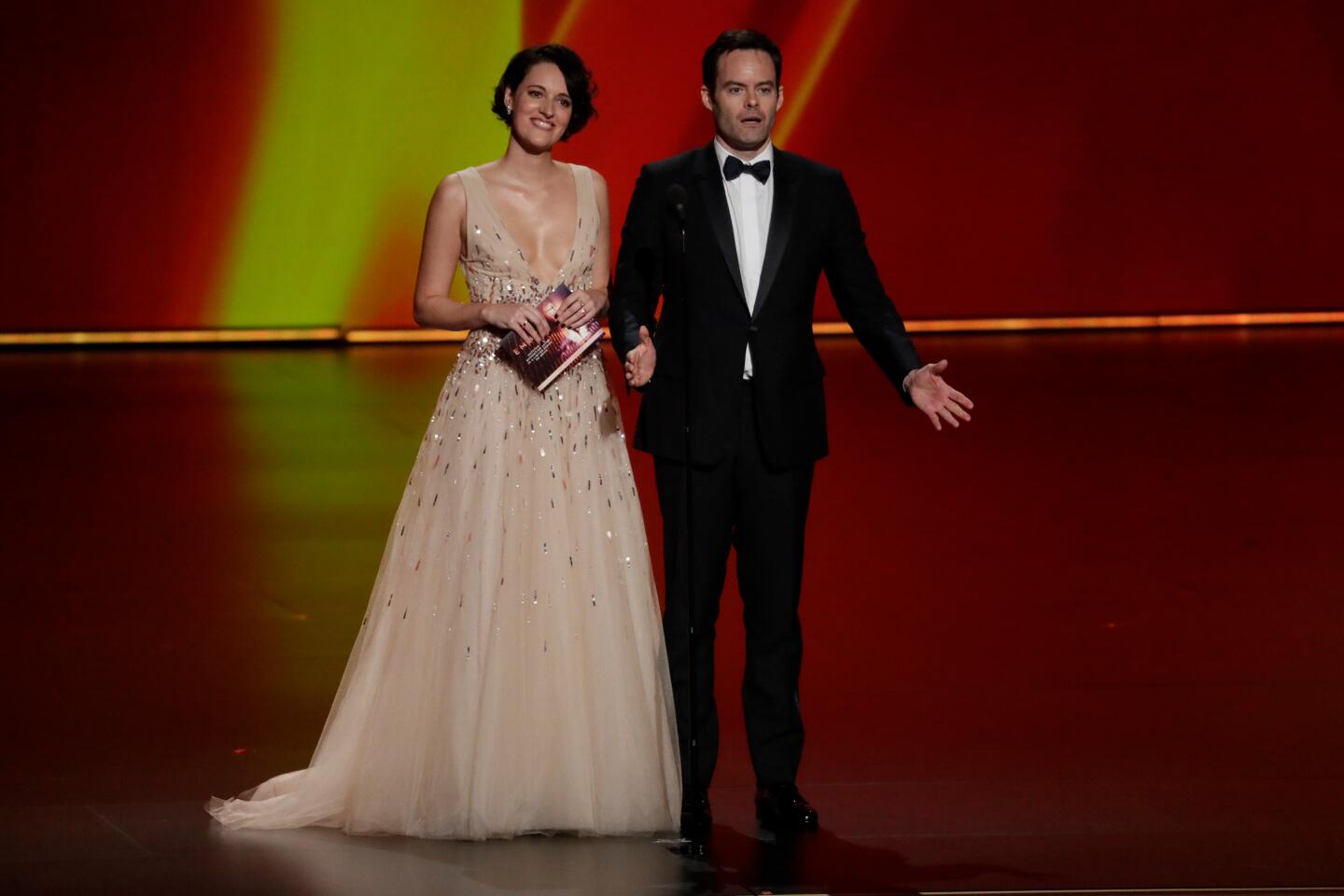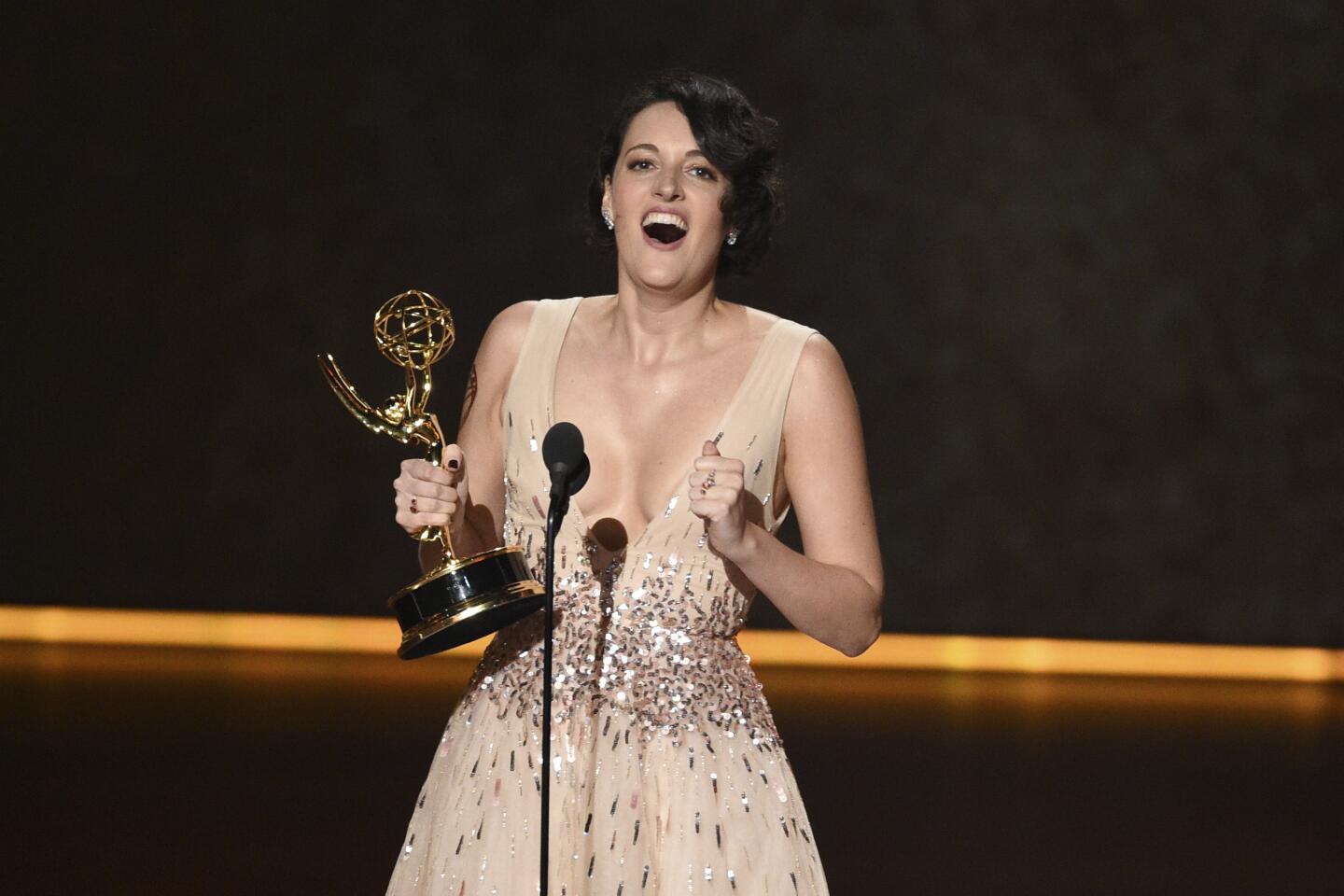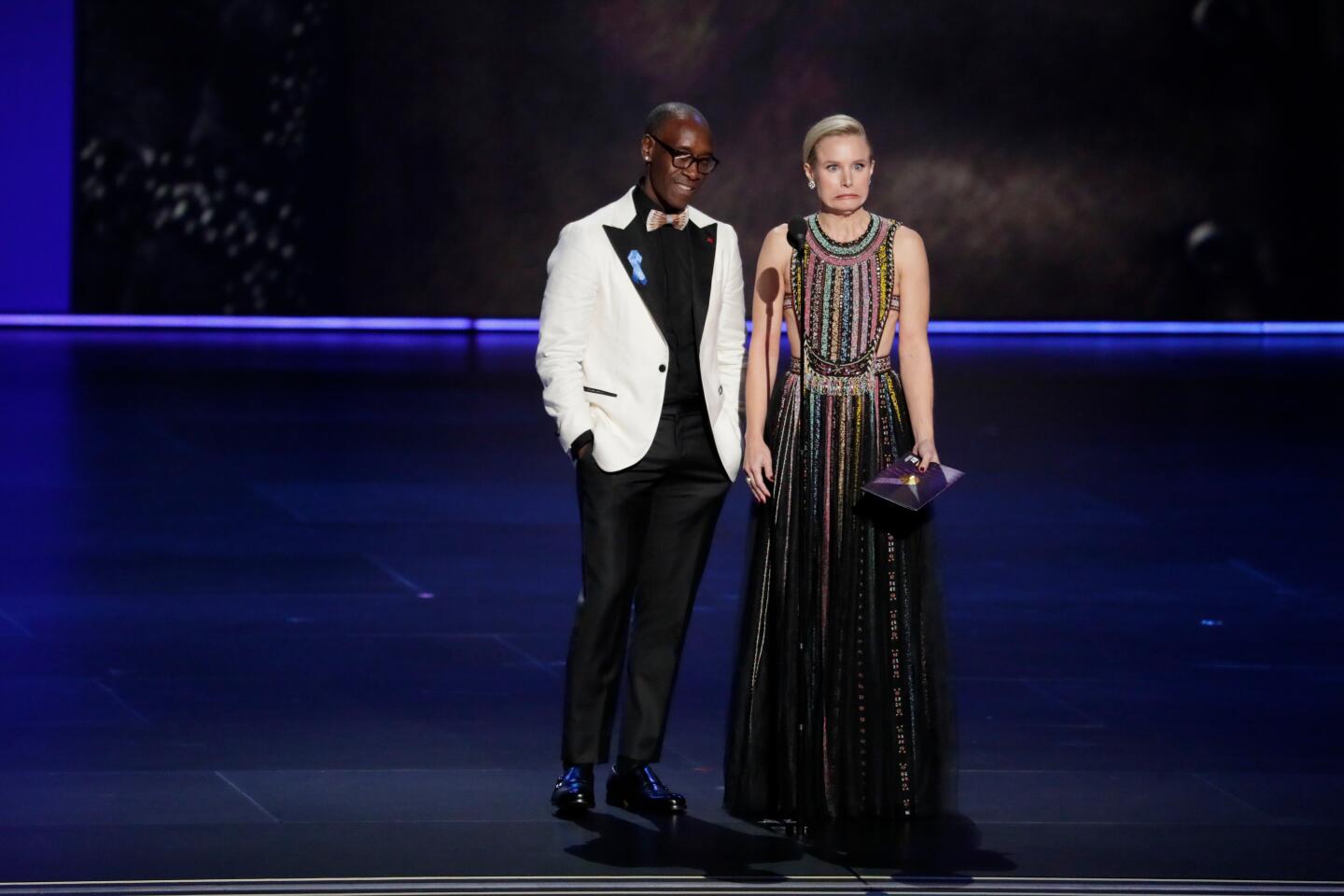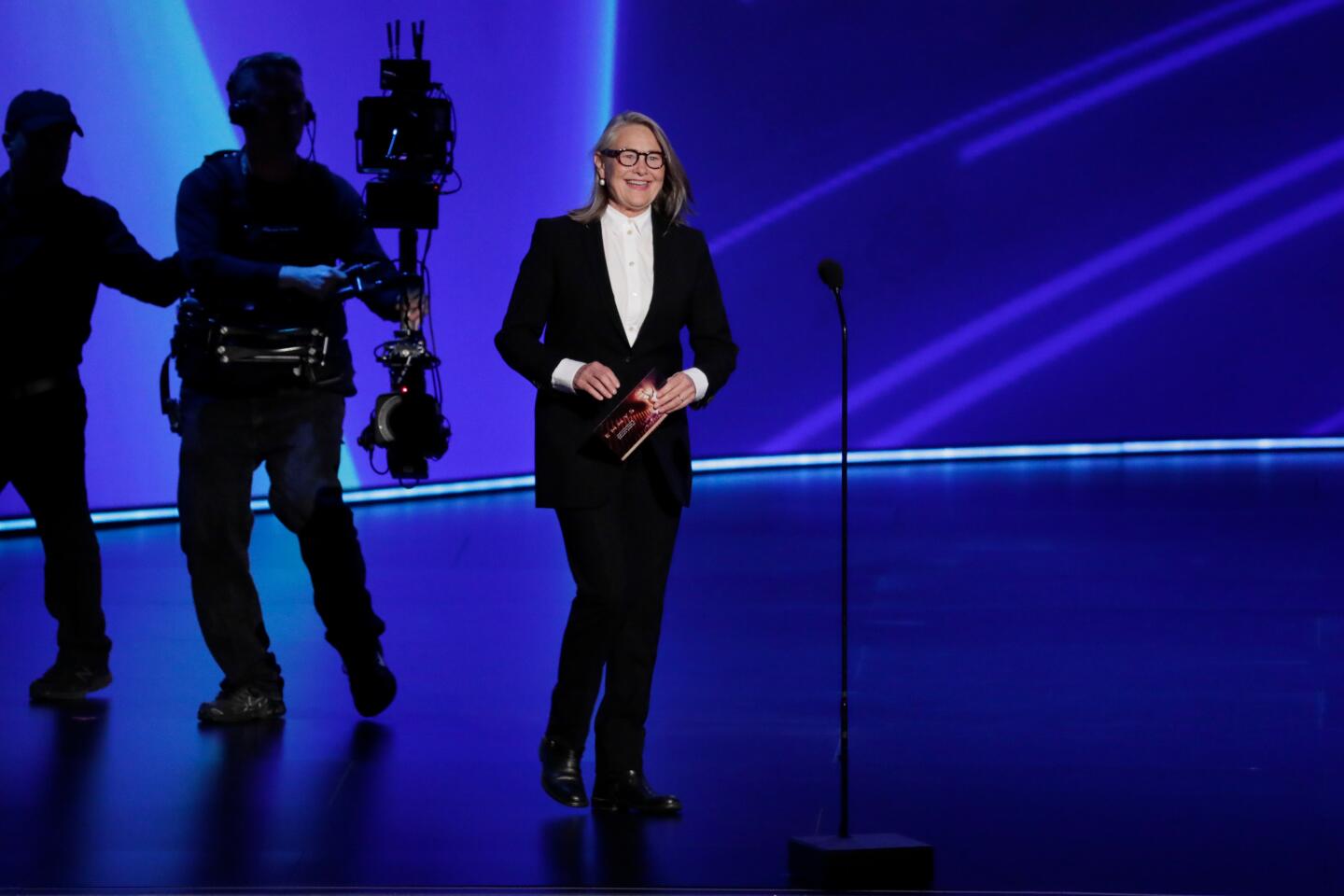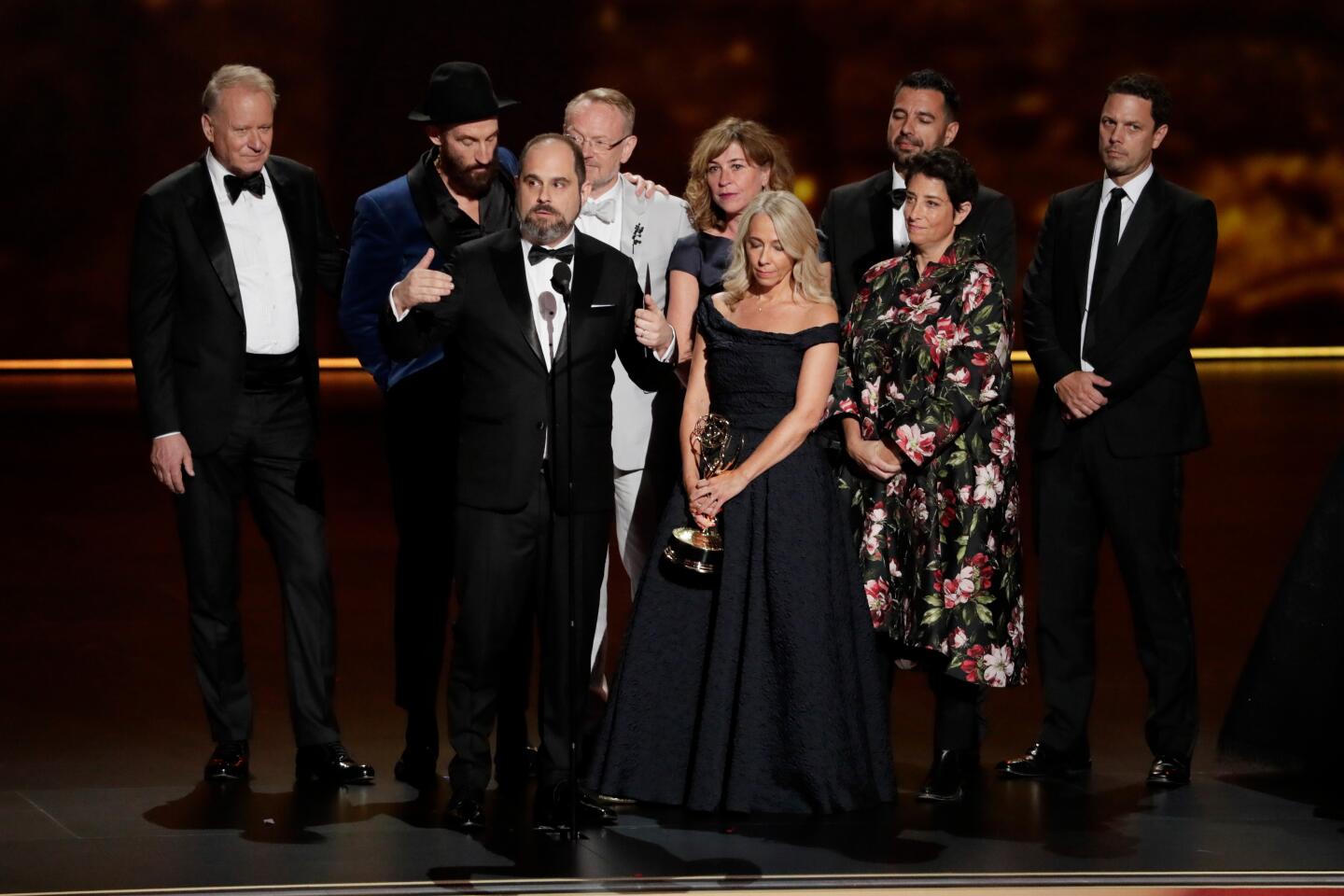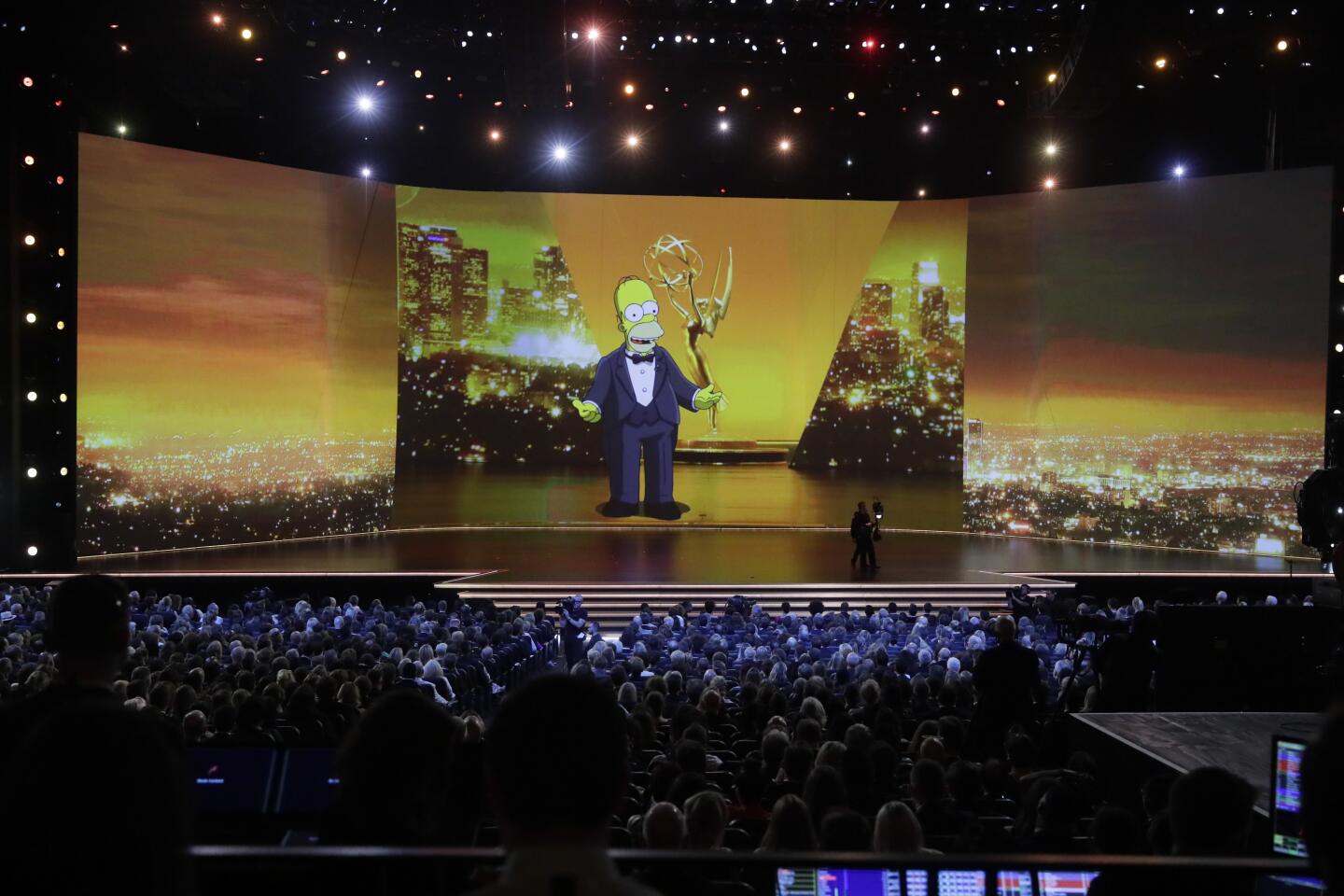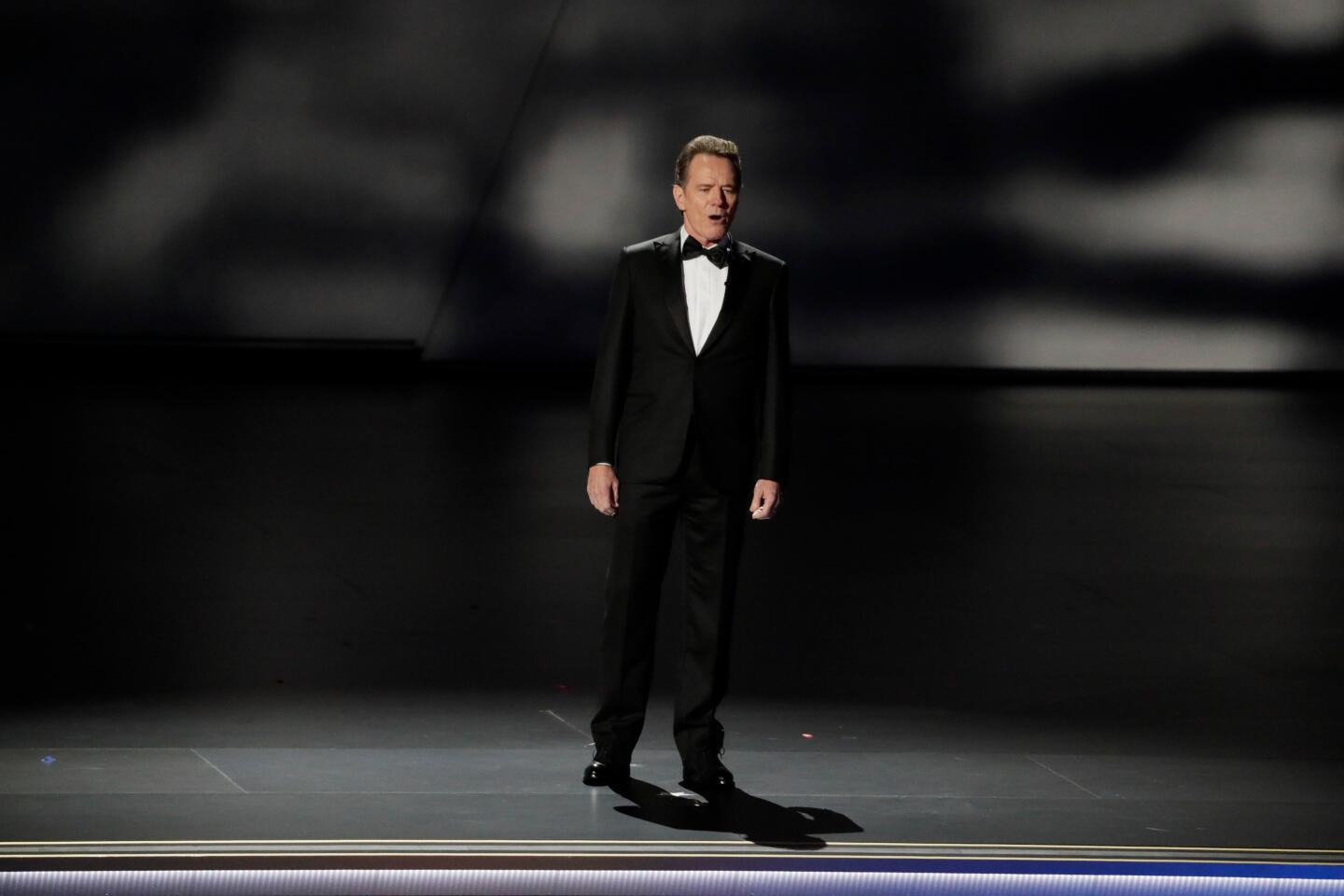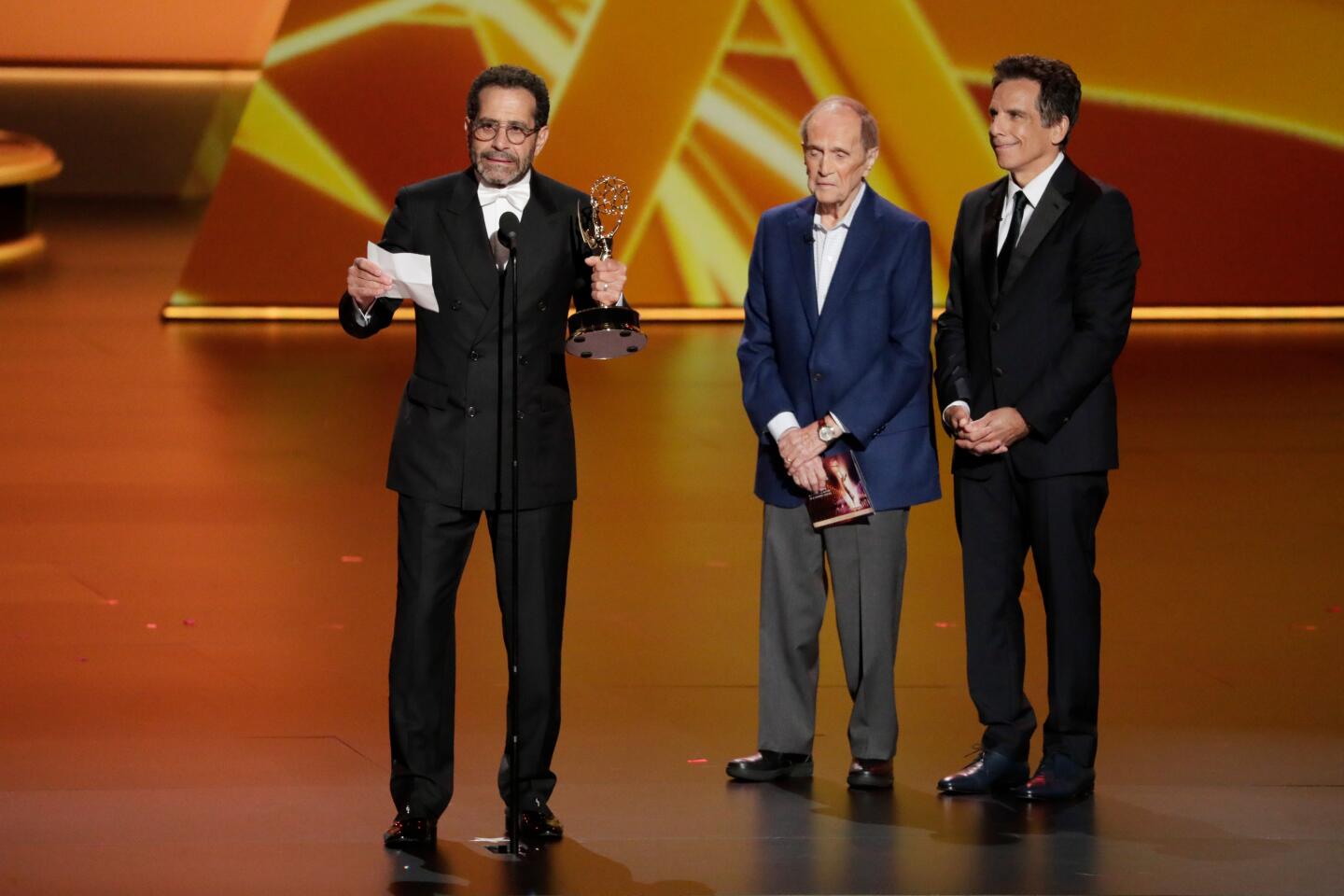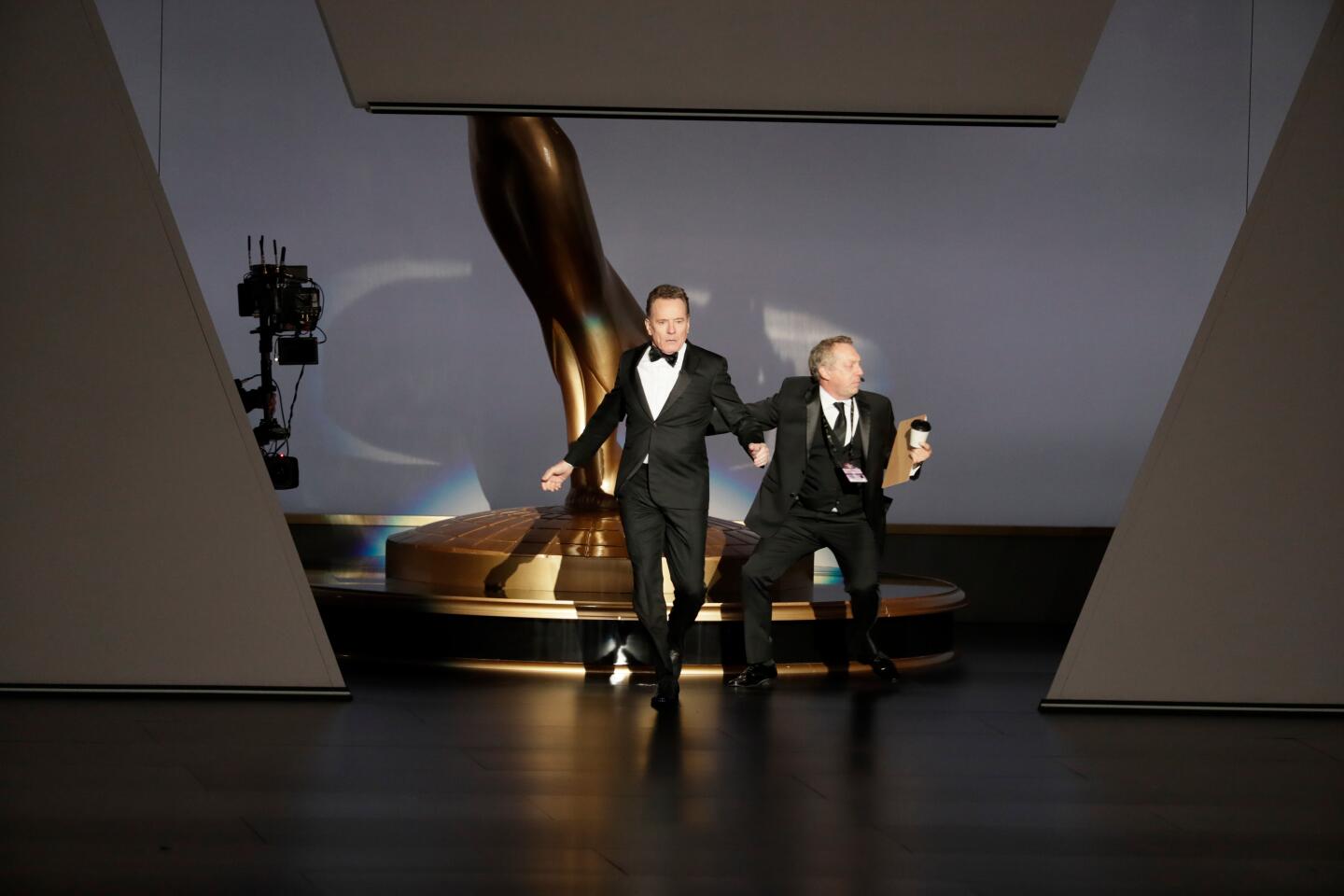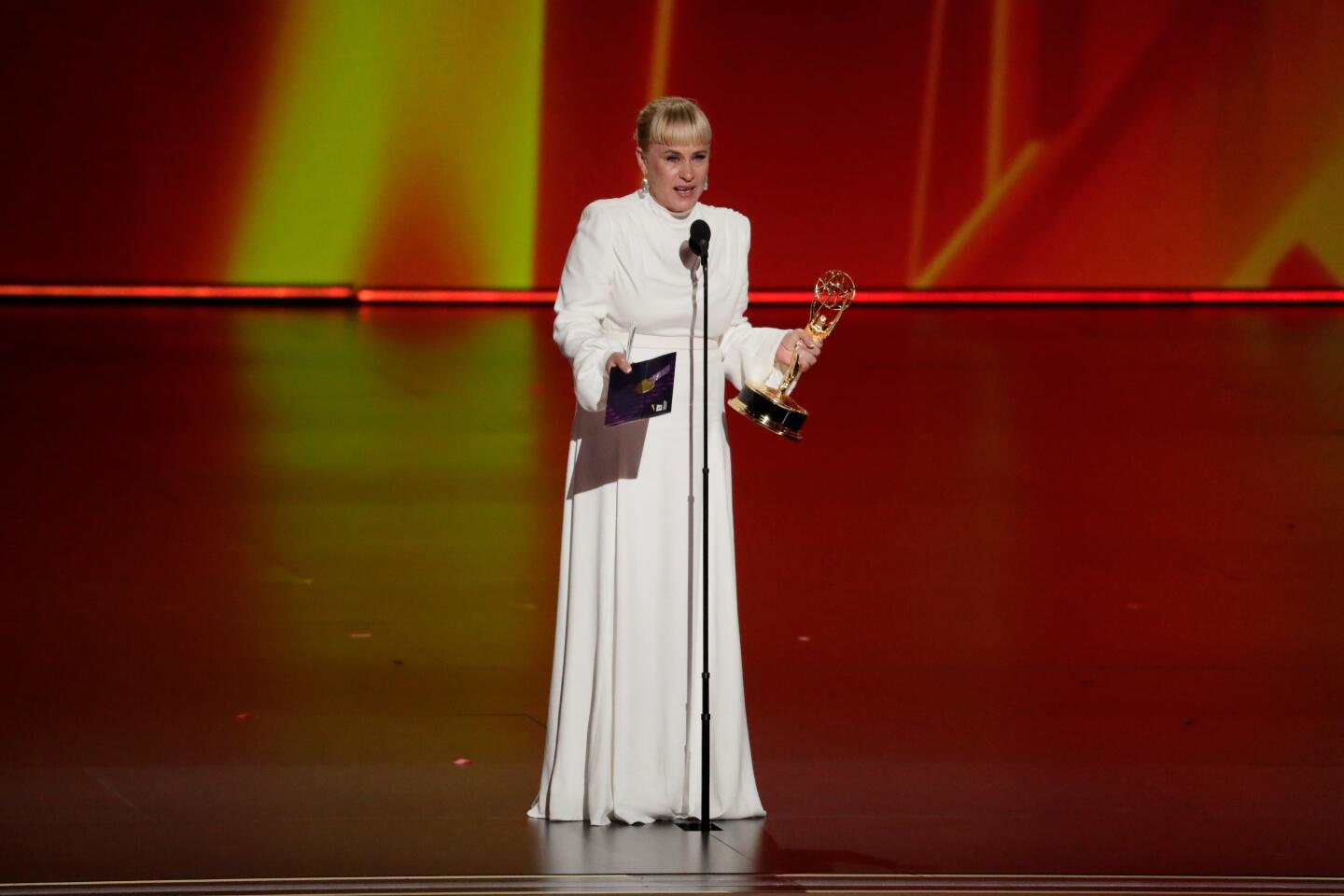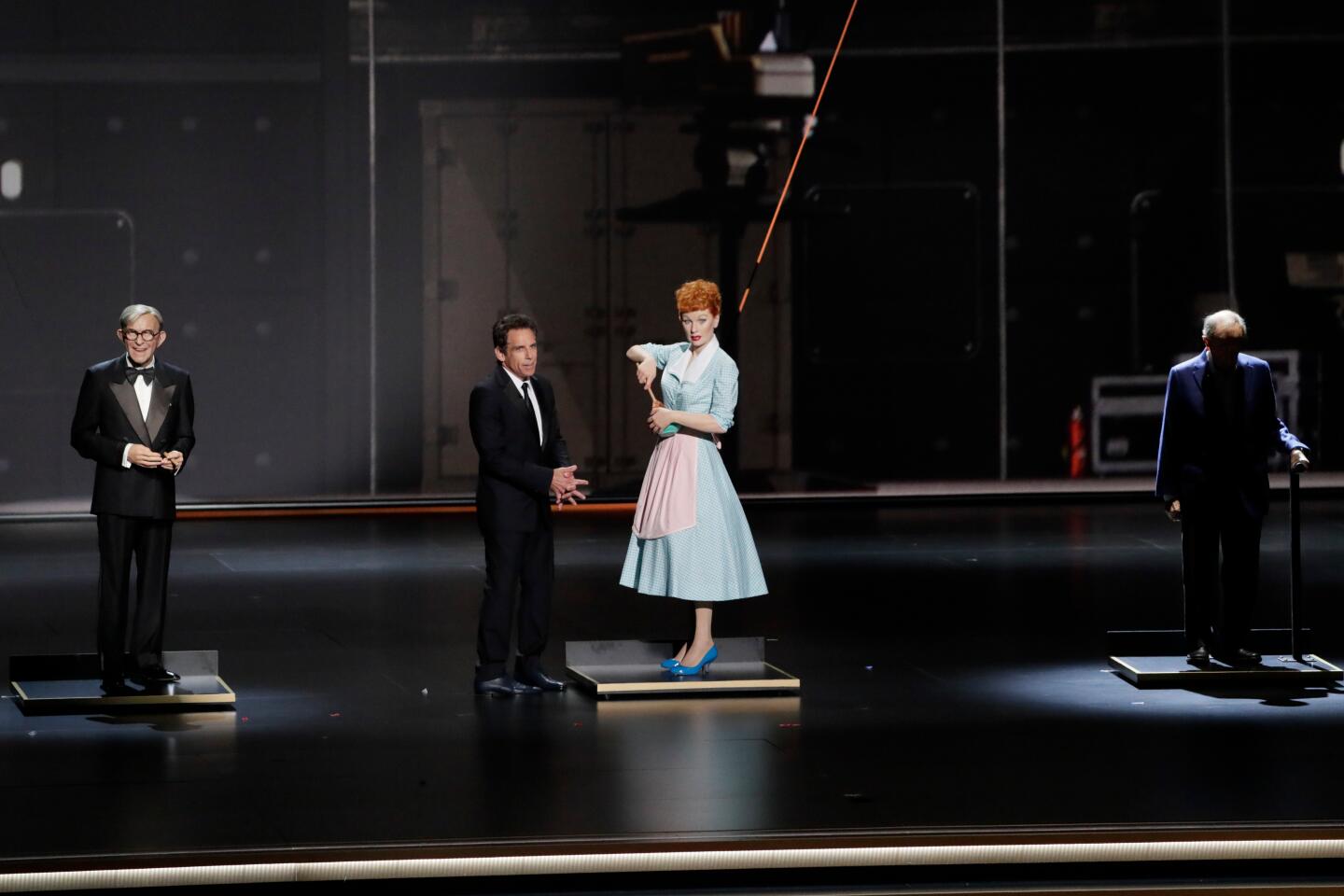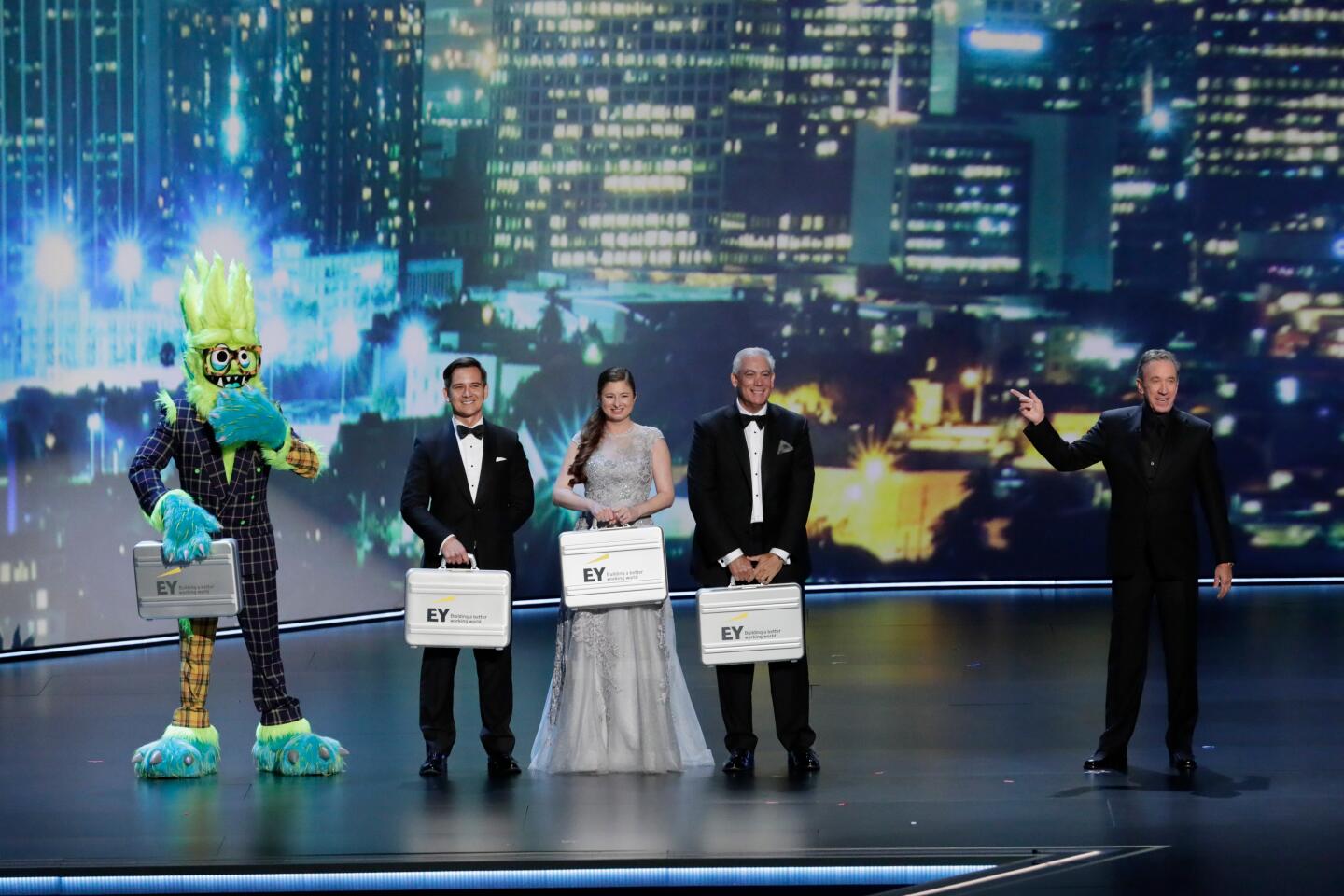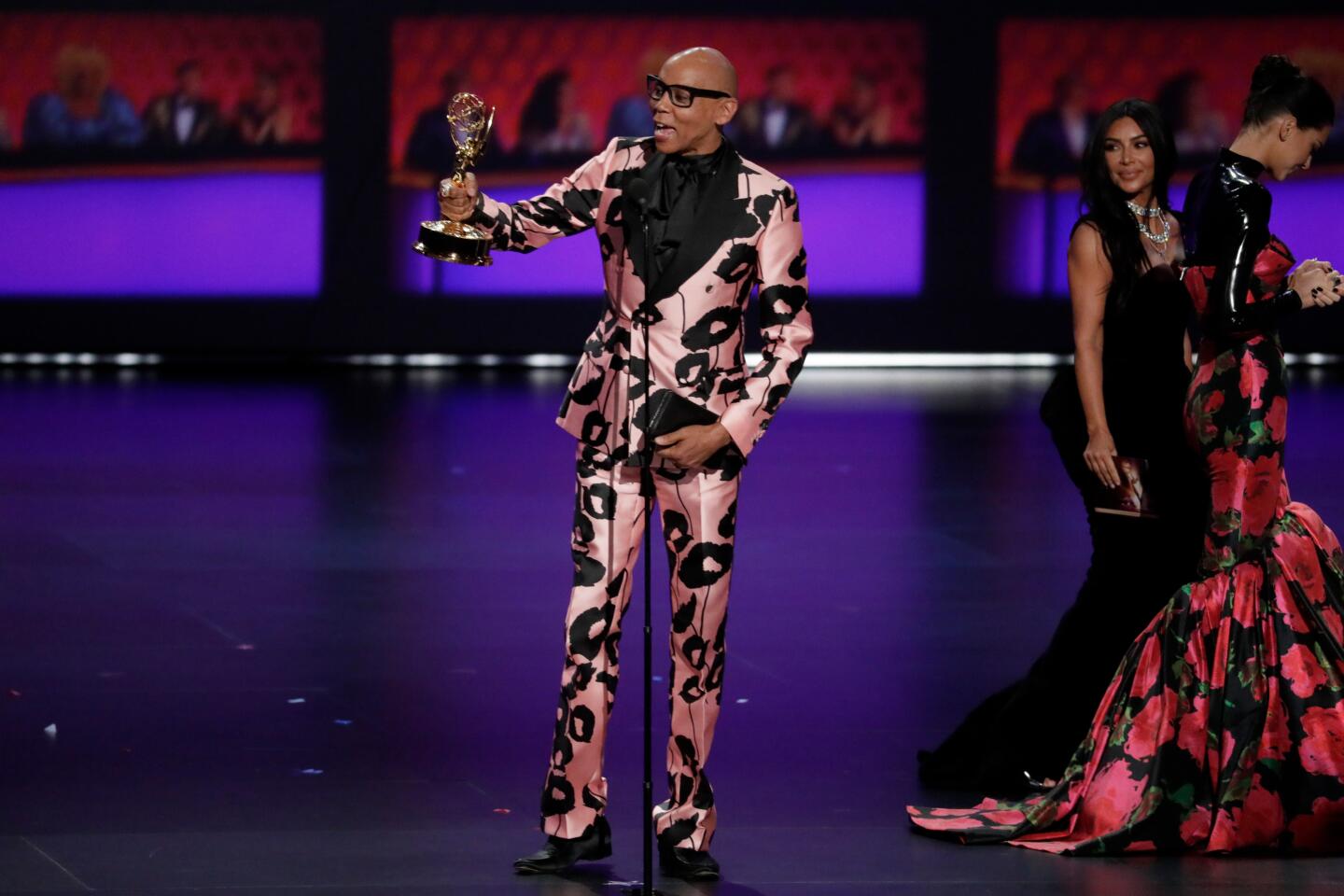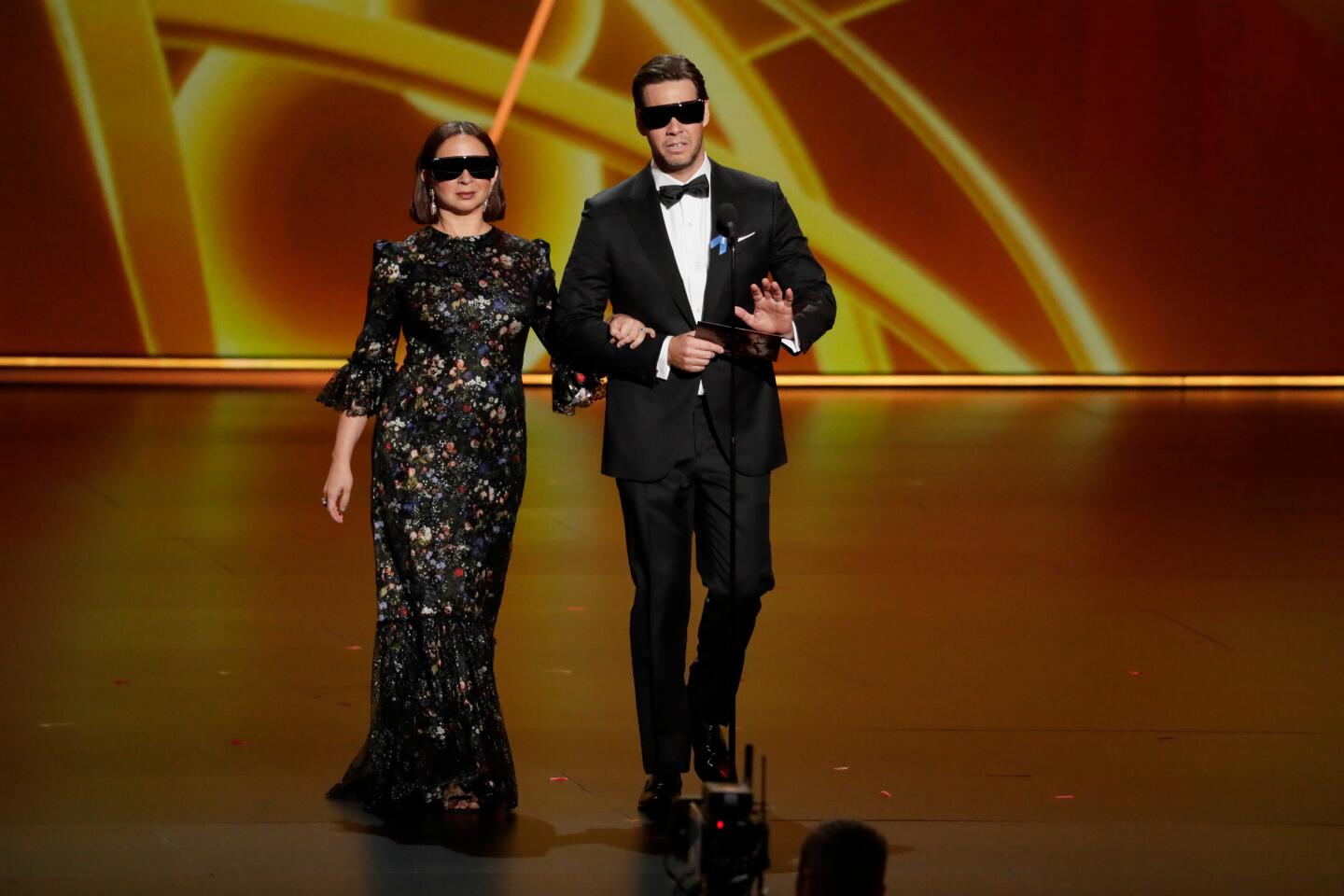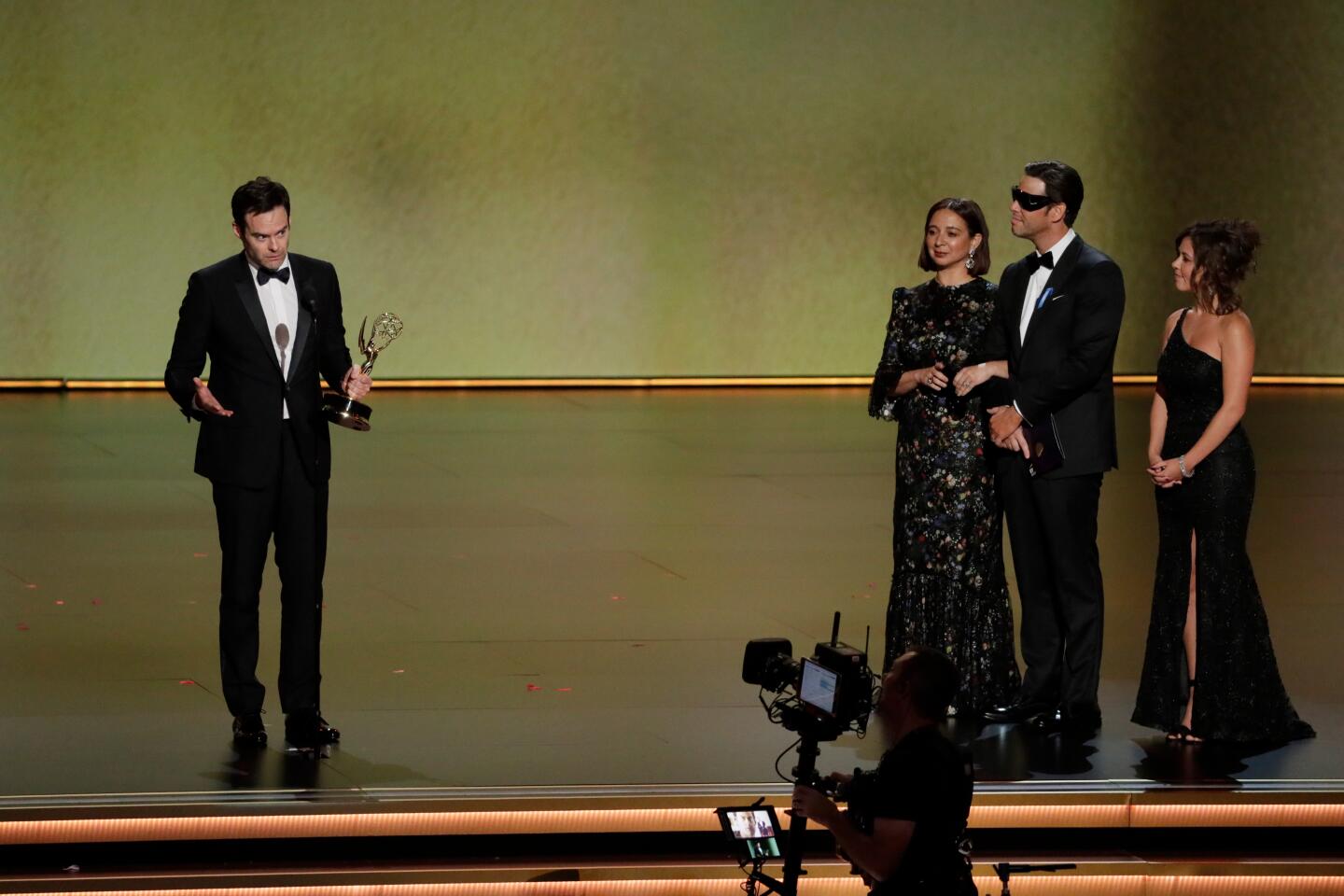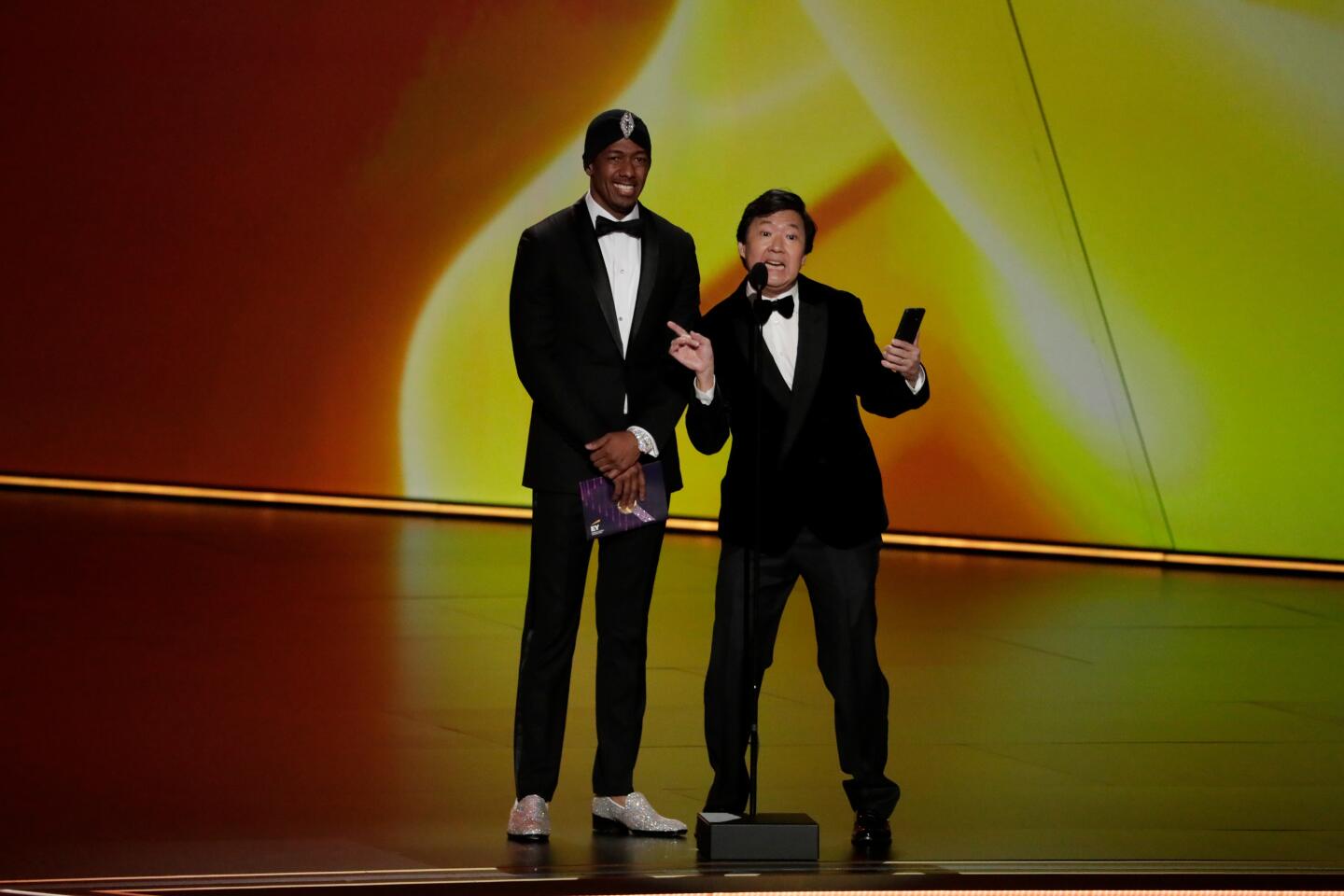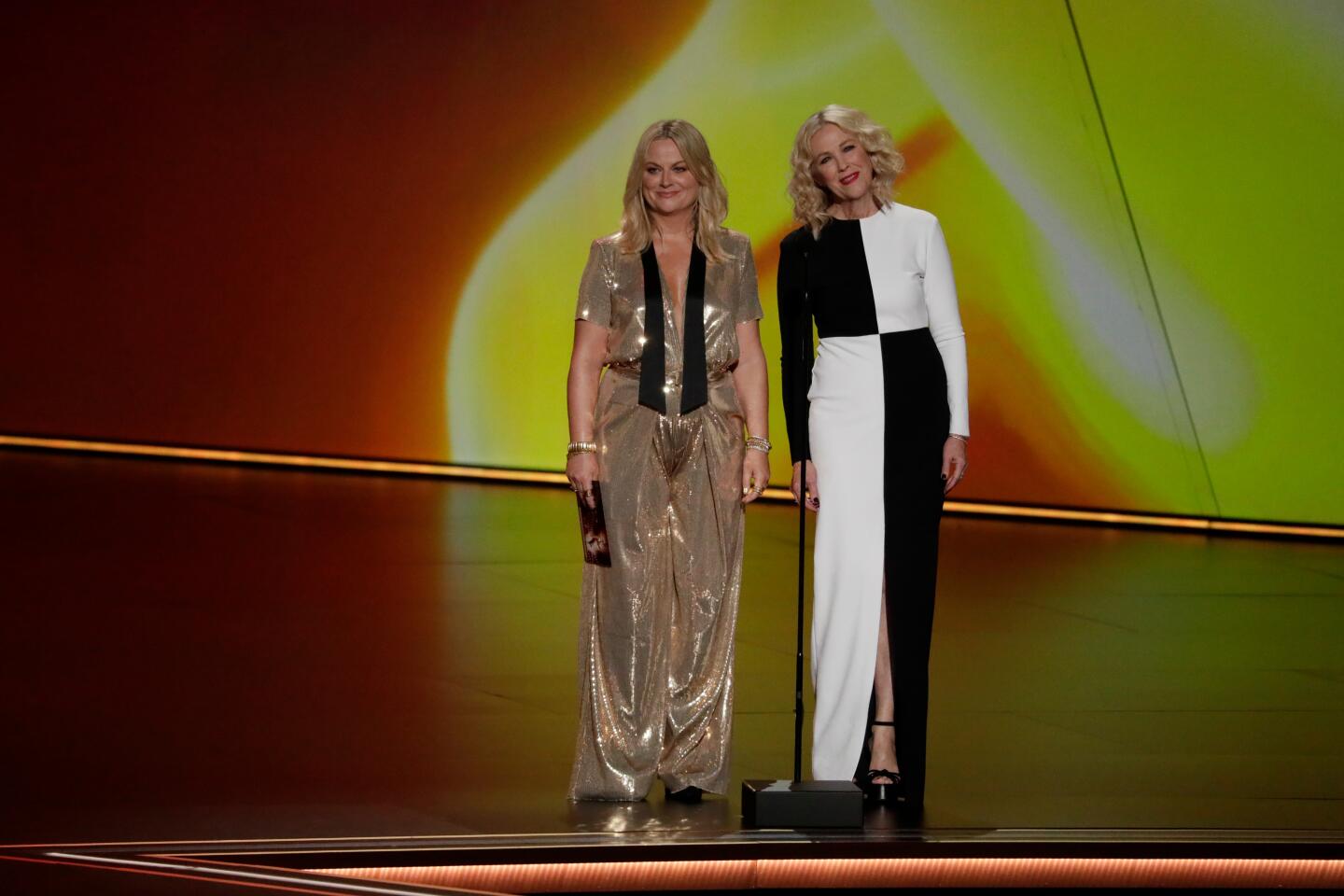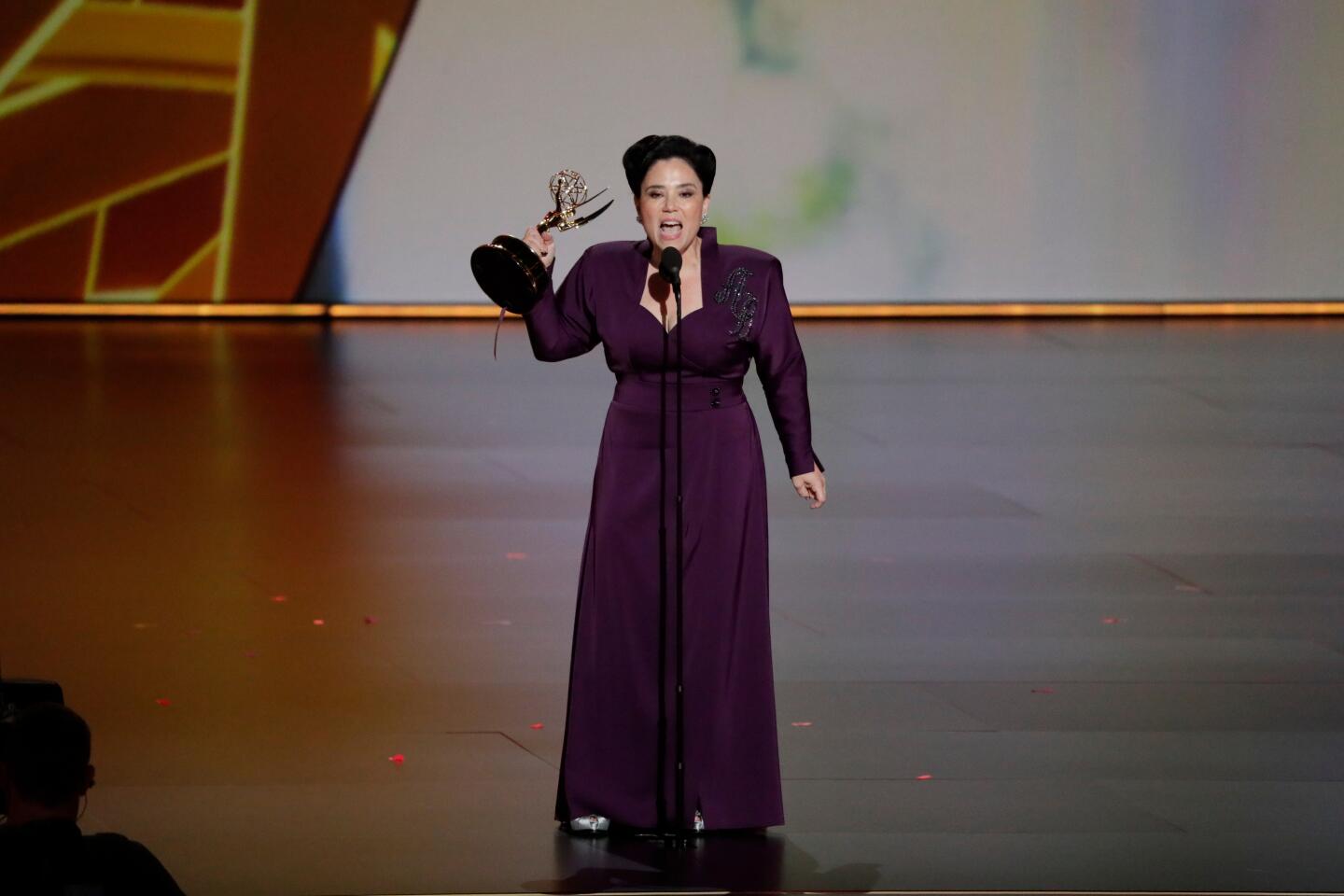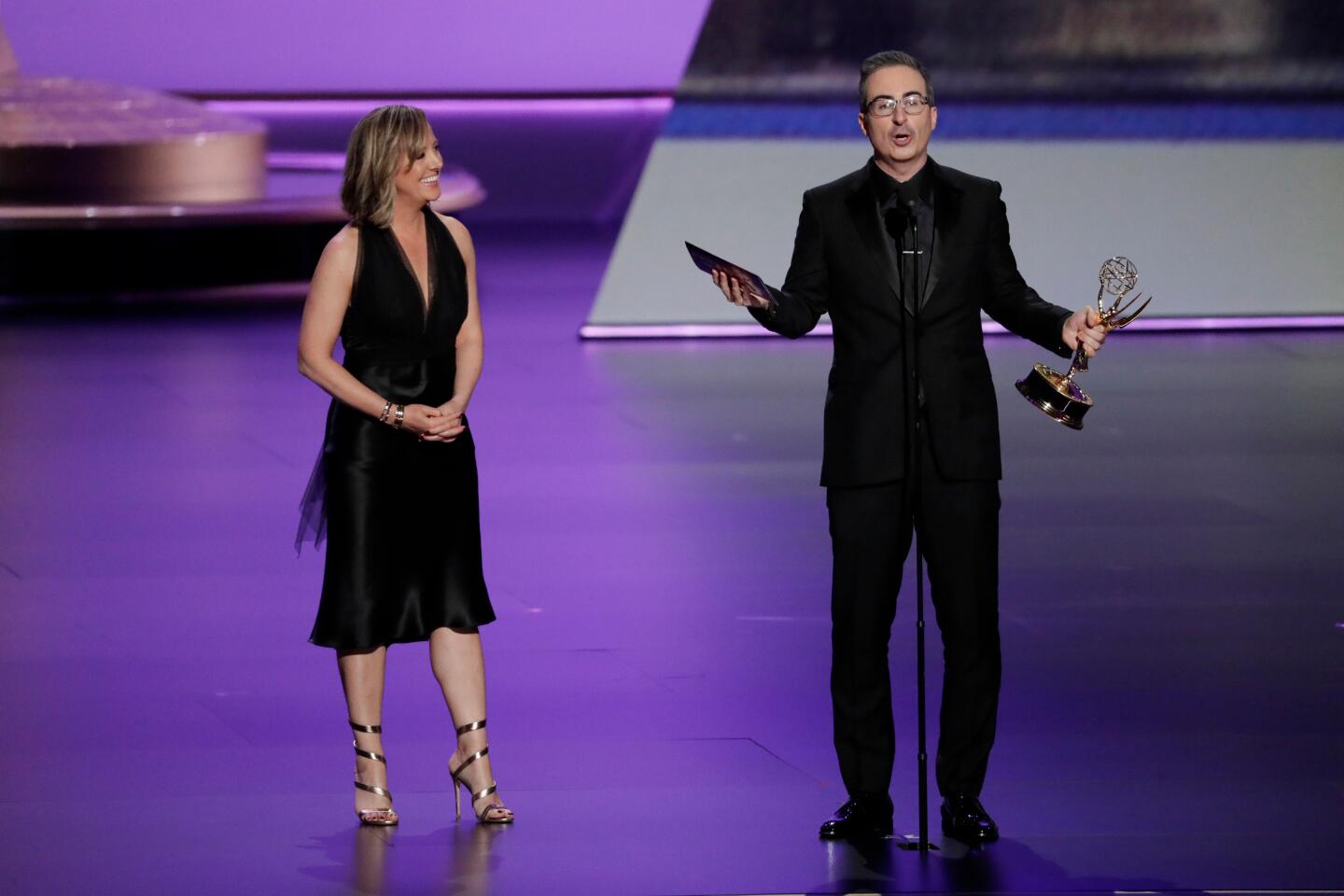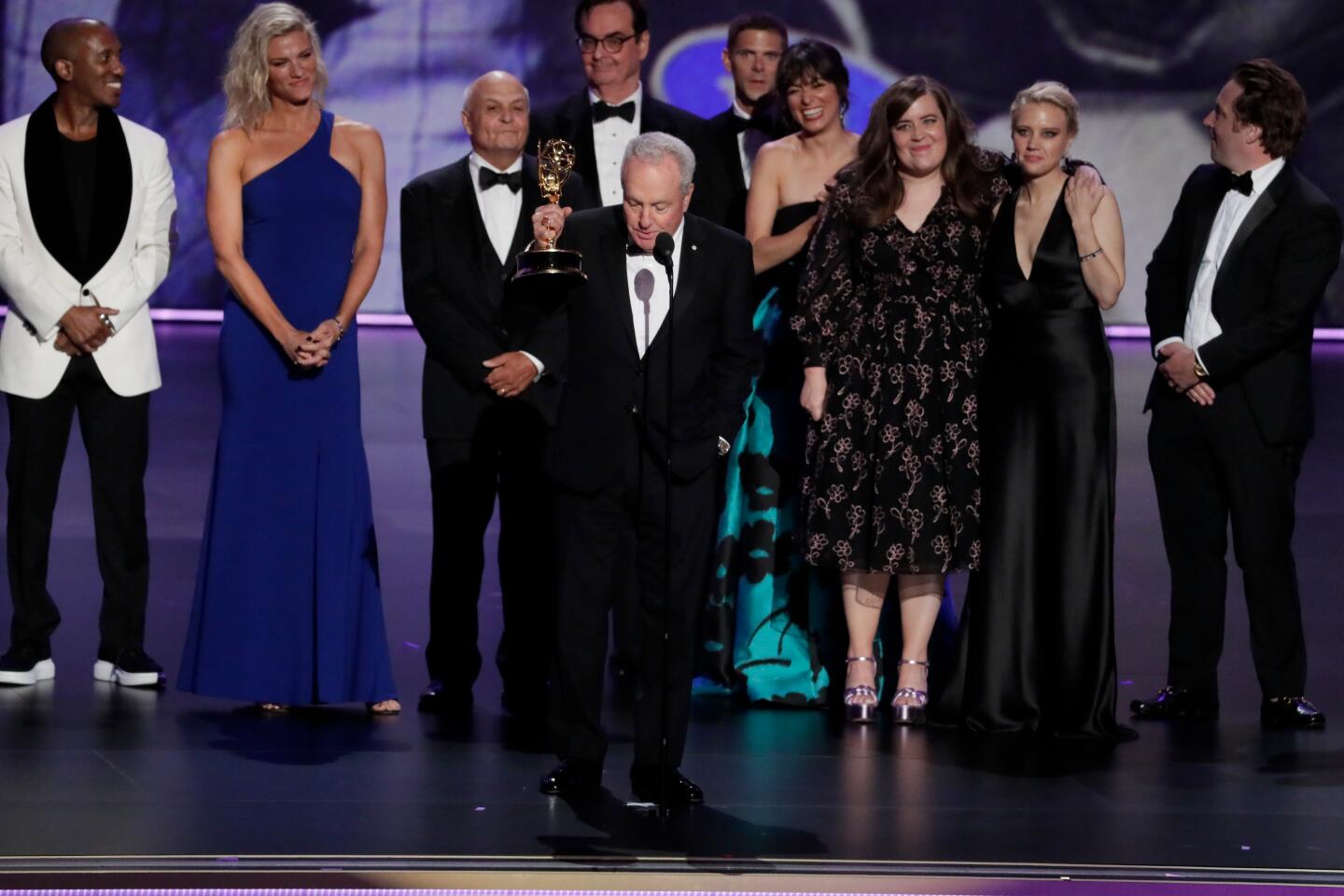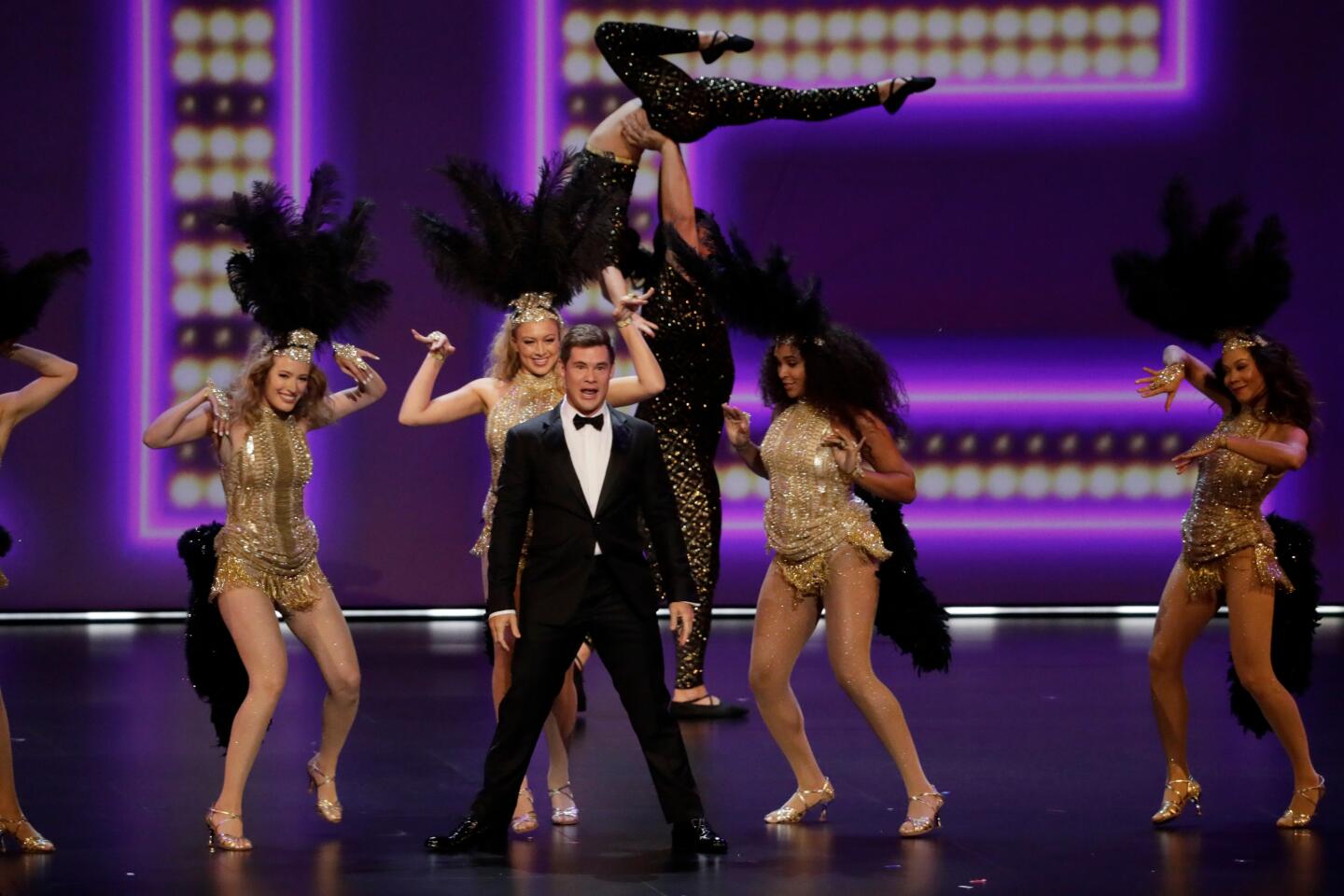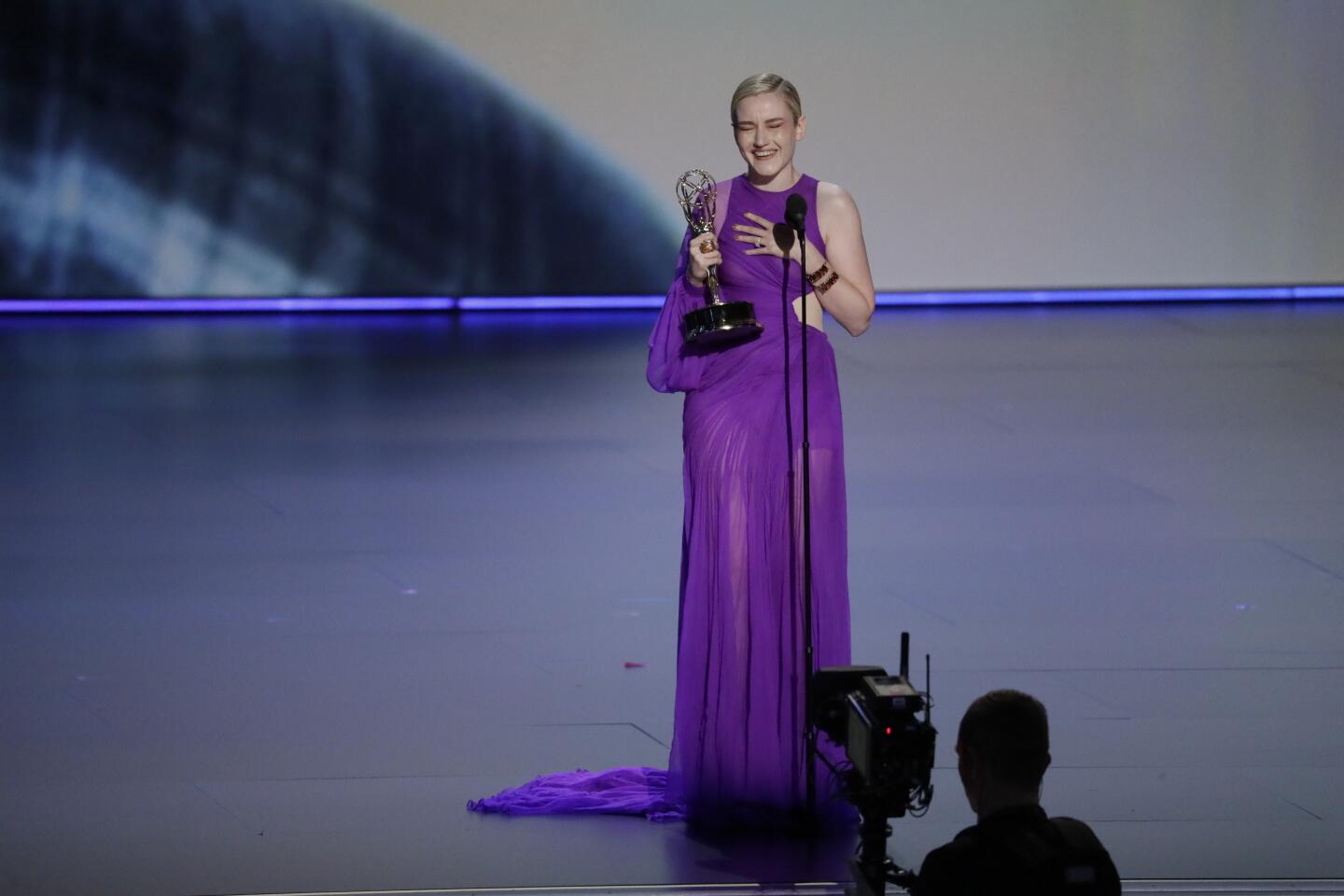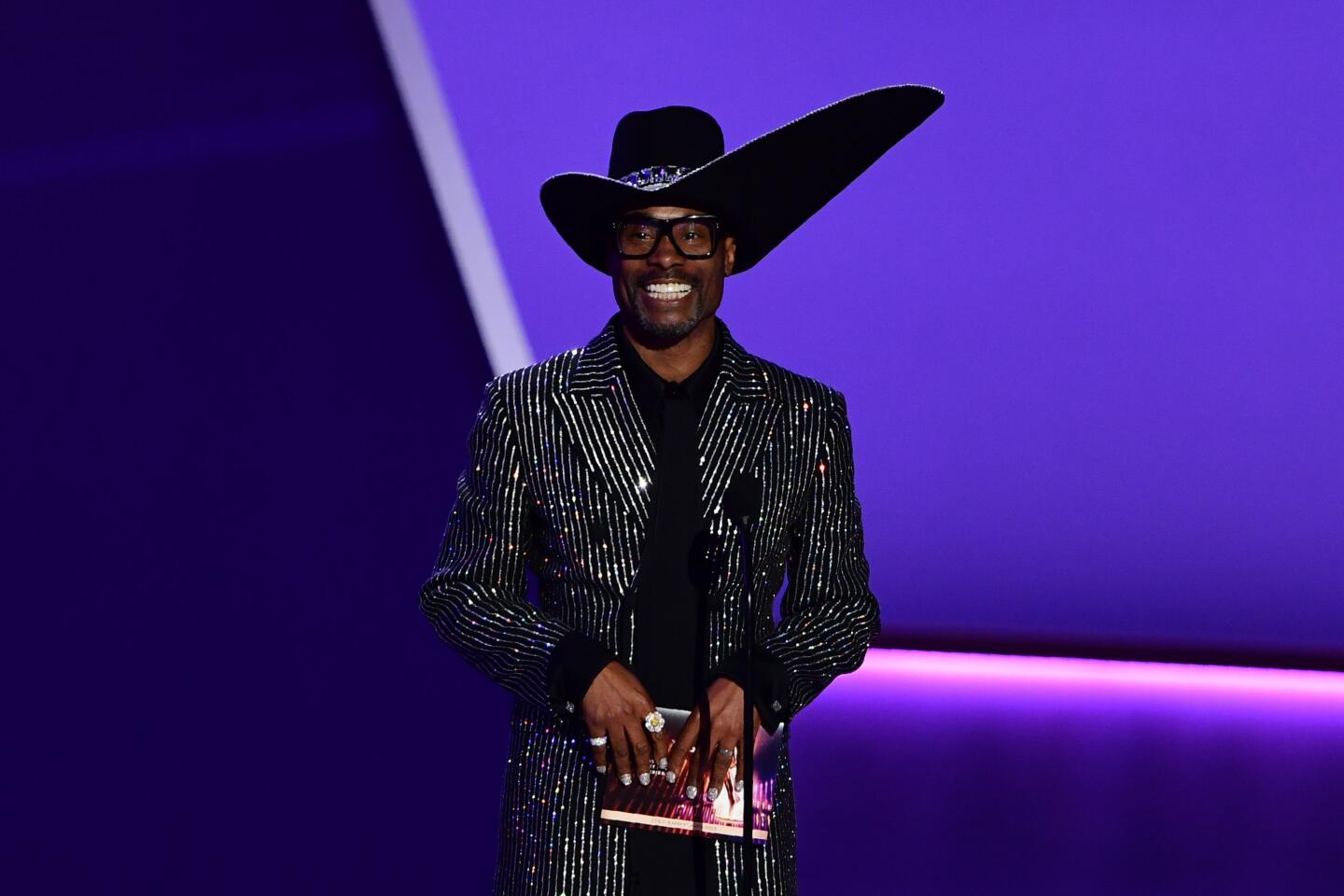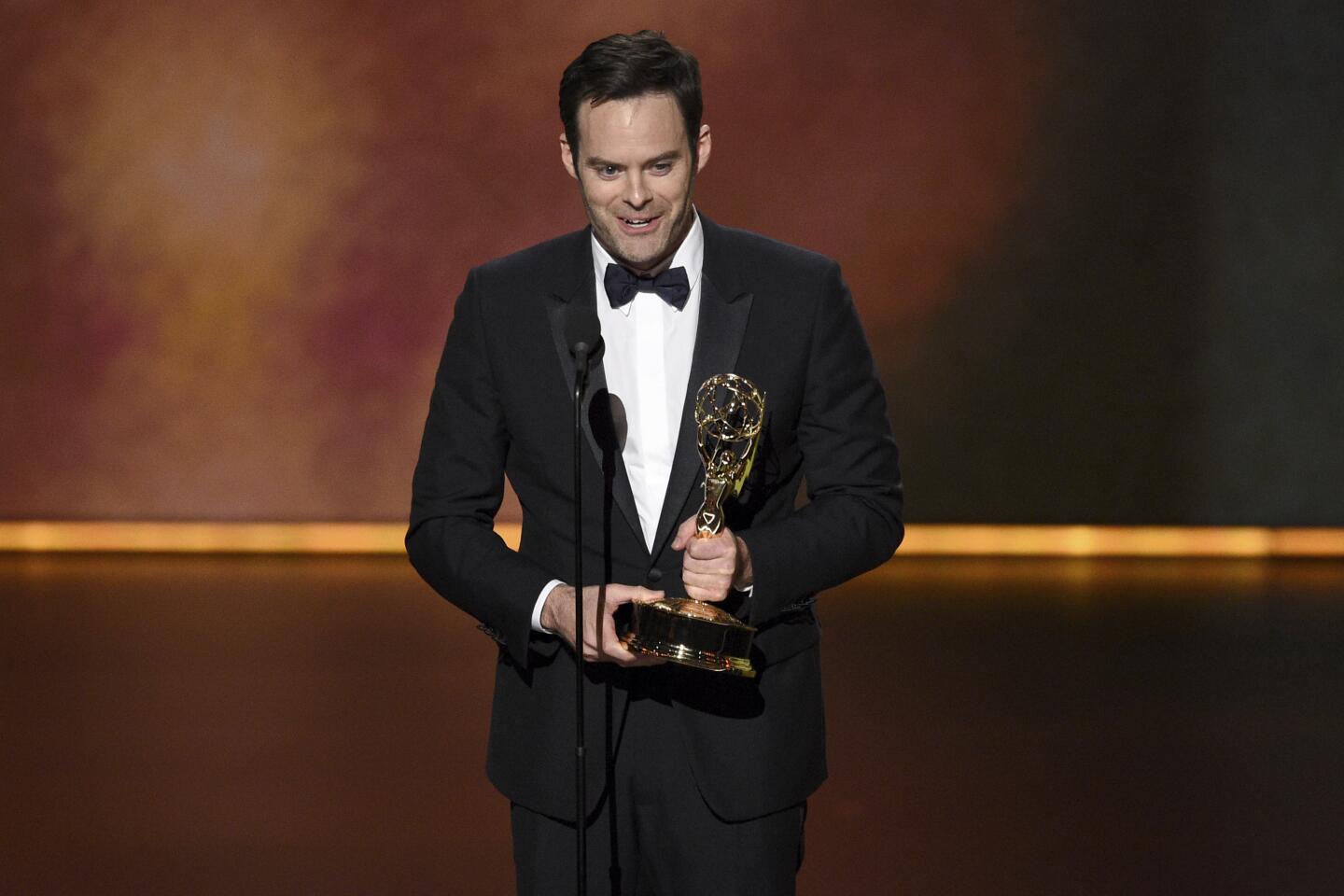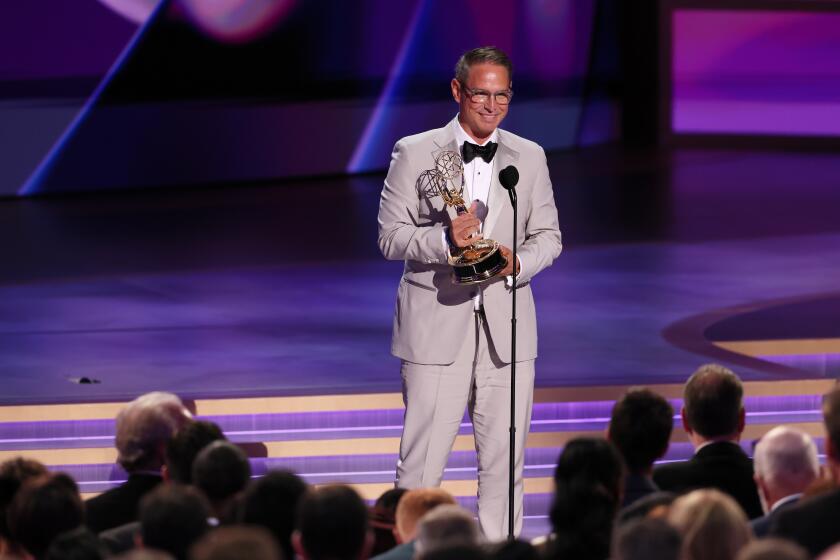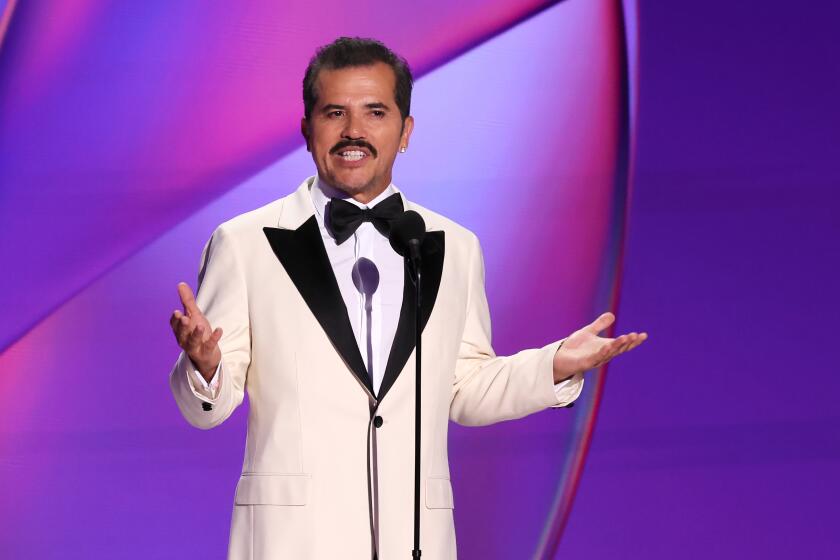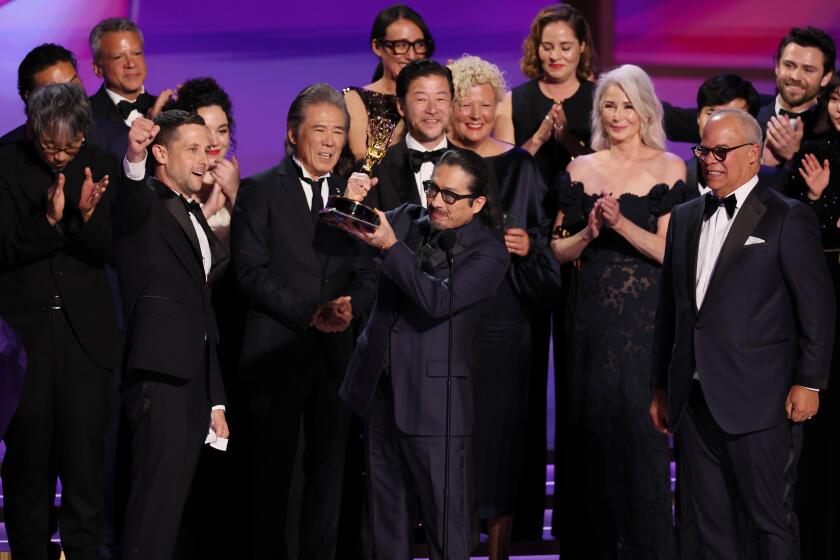Column: ‘Game of Thrones’: The Emmys sweep that wasn’t
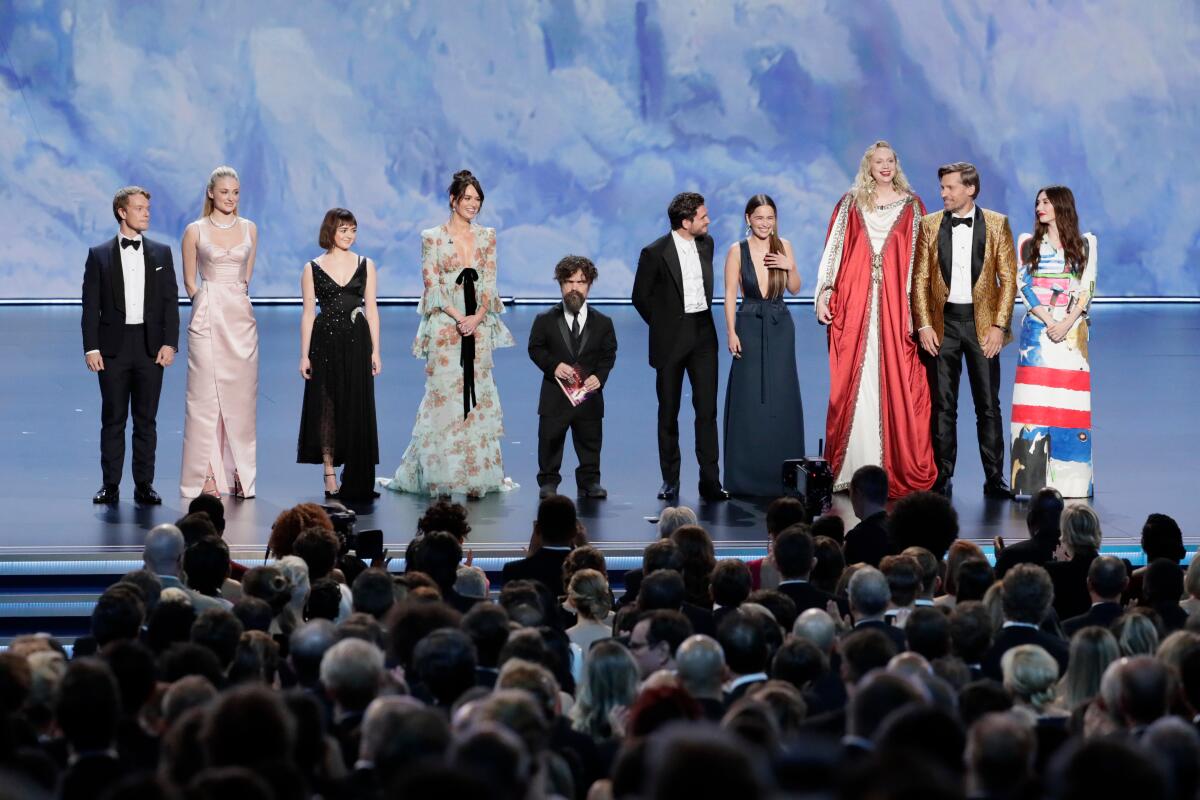
In the hours before Sunday night’s Emmys telecast, a “Game of Thrones” sweep was the second-safest bet in town, the first being Julia Louis-Dreyfus winning her 187th Emmy or whatever for “Veep.”
So much for safe bets. Although the “Thrones” cast avoided “Veep’s” strange and, one imagines, highly uncomfortable experience of assembling for a farewell in front of an audience that gave it absolutely no Emmys, the HBO epic discovered its much-predicted sweep was fantasy too.
From a dominant night for Phoebe Waller-Bridge’s “Fleabag” to historic wins by Billy Porter and Jharrel Jerome, daring television prevailed at the 2019 Emmys.
Though it won drama series, and Peter Dinklage took his record-breaking fourth supporting actor statuette, “Thrones” ended its reign more like Cersei than like Arya: Instead of slaying the night, it found many of its Emmy hopes buried, perhaps by the sheer weight of its own legacy.
Although it took five tries before the HBO fantasy epic won drama series, it had entered its final awards season having won the category for each of the last three years it was eligible. In 2015, the series set a record for the most Primetime Emmys won in a single year (12); the following year it became the most awarded series in the history of the Emmys, a feat made even more notable by the fact that it has only ever won in one acting category (although Peter Dinklage had taken the supporting actor prize three times before winning Sunday night).
This year it set another record for the most nominations (32) and won an impressive 10 awards at this year’s Creative Arts Emmys.
With numbers like that, what could possibly stand in the way of what Times awards critic Glenn Whipp predicted would be a final-season “Game of Thrones” coronation?
The Emmys went off script this year with delightful, shocking wins for “Fleabag,” Phoebe Waller-Bridge and Jodie Comer.
Well, fate, which never likes a showoff, for one thing. And that final season for another.
“Game of Thrones” may be the only television show in history that had a better chance of winning a bunch of Emmys for its final season before that season aired. Certainly the anticipation of the story’s conclusion was a far more pleasant experience for many than actually watching it. Yes, you could argue, as many have (including me), that the fury and disappointment so many felt about certain twists proved the power of the show. But it was fury and disappointment nonetheless.
Opting for six episodes, several of which ran for 90 minutes or more, creators David Benioff and D.B. Weiss, who have won two Emmys for writing and lost last year to Joel Fields and Joe Weisberg for “The Americans,” amped up the spectacle at, many thought, the expense of character and story.
The final outcome of the piece, which, among other things, saw Bran (Isaac Hempstead Wright) put on the Iron Throne, Jon Snow (Kit Harington) trudging north of the Wall and Daenerys (whose name we had finally all learned to spell!) drooping lifeless in the claws of her last remaining dragon (who no one seemed at all concerned about, although, you know, it is a dragon and one with vengeful mommy issues) left many, including key cast members, dismayed.
While other final seasons have been greeted with campaigns for continuation, “Game of Thrones” received the dubious honor of having thousands sign a petition calling for a “do-over.”
Emmy voters are television professionals, with insider empathy, but they are also television viewers and no one could call the final season a resounding success. Certainly the Television Academy did not, passing “Thrones” over in both writing and directing categories.
Although “Thrones” got more acting nominations (nine) than it had ever received before, it has long suffered, with the exception of Dinklage, from the (wrong-headed) assumption that acting is not what fuels an epic (see also “Lord of the Rings,” which won Oscars in virtually every category but acting). The final season, with its long and visually impressive set pieces, was not designed to change that. Although Emilia Clarke did her best, Daenerys’ descent into madness took place, apparently, off-screen while Lena Headey’s Cersei spent much of the final season gazing into her goblet, albeit with an expertly curled lip.
And the number of nominations created the additional obstacle of internal competition — were Emmy voters in the drama supporting actress category Team Sansa (Sophie Turner) or Team Arya (Maisie Williams)? Team Cersei or Team Brienne of Tarth (Gwendoline Christie)?
Team Garner, it turned out, when “Ozark’s” Julia Garner won the category.
For a minute, it seemed as though Dinklage might emerge as the show’s only winner, bearing the legacy of the sprawling tale as he had carried its weight so often in the final season. But in the end, though the academy chose an assortment of newcomers over a Westeros sweep, it gave “Thrones” its last big victory. All of which seems fitting for a flawed but still ambitious final season.
Whether you liked the show or not, whether you thought the honors it received were deserved or not, there is no arguing that “Game of Thrones” changed and challenged television in ways never seen before. “Epic” does not begin to describe the scope of the show or the effect it had on its viewers; not since the shooting of J.R. have so many been so passionate about the fate of televised storytelling. And now, everyone has something else to talk about for a while.
More to Read
The complete guide to home viewing
Get Screen Gab for everything about the TV shows and streaming movies everyone’s talking about.
You may occasionally receive promotional content from the Los Angeles Times.
